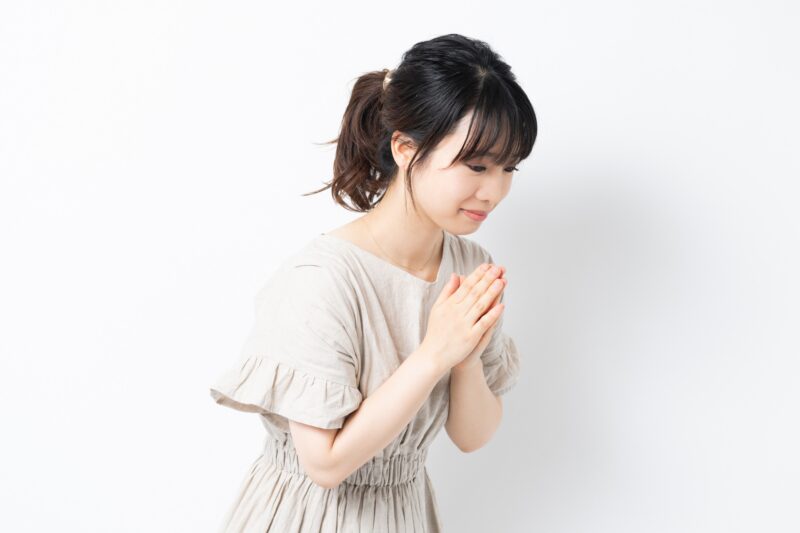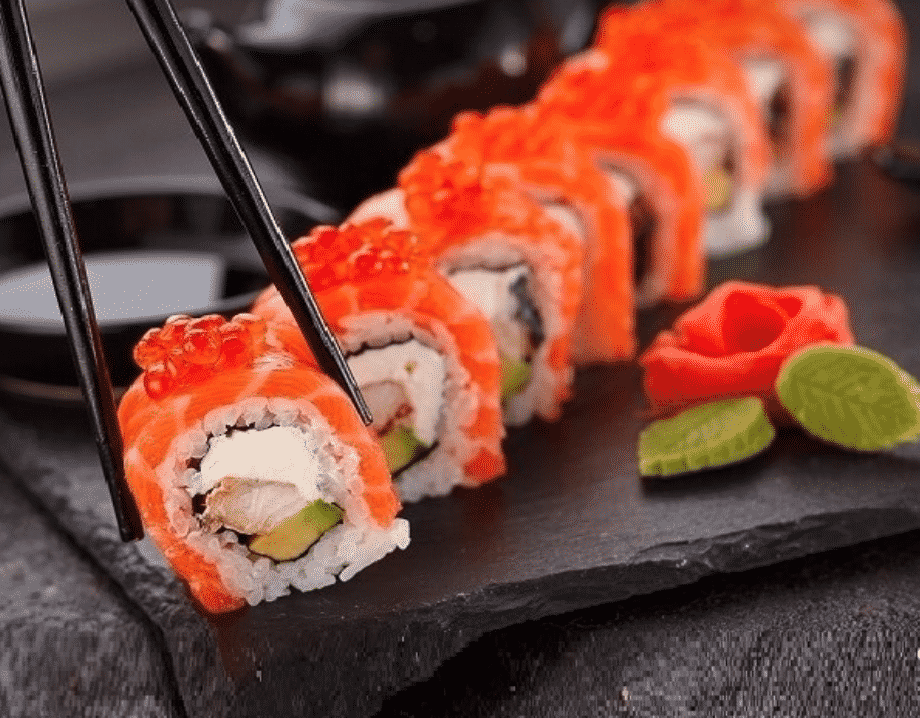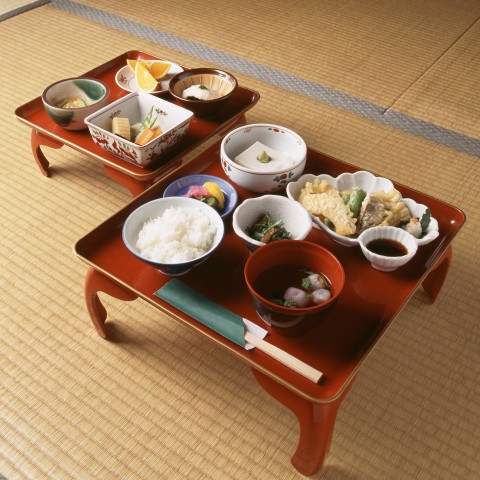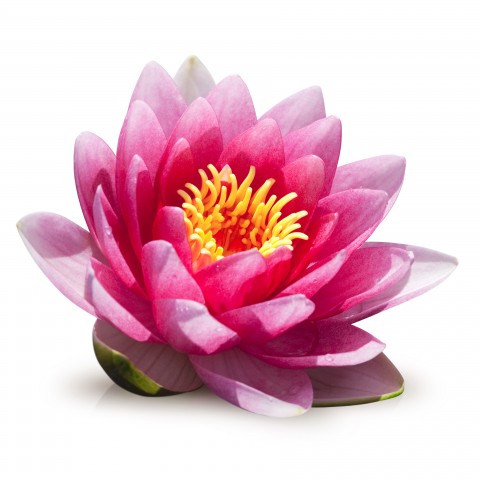What Are the Top 100 Basic Japanese Words? Have you learned hiragana and katakana? Now you can step up your Japanese learning game by taking on some basic Japanese words and vocabulary.
We have selected the top 100 Basic Japanese words you need to know and sorted them into 8 lists. If you think you’ve mastered them, head to our top 101 basic Japanese adverbs to make your conversation more interesting and dynamic.
This blog is meant to help you learn the words so that you can try to form basic Japanese sentences with these basic Japanese words.
Greetings
People
Numbers
Months
Days of Weeks & Times in a Day
Adjectives
Verbs
Food
Greetings
Basic Japanese Words for Greetings
| Japanese | Pronunciation | Meaning |
| おはようございます | Ohayou gozaimasu | Good morning |
| こんにちは | Konnichiwa | Hello/ good afternoon |
| こんばんは | Konbanwa | Good evening |
| おやすみなさい | Oyasuminasai | Goodnight |
| ありがとうございます | Arigatou gozaimasu | Thank you |
| すみません | Sumimasen | Excuse me/ sorry |
| ごめんなさい | Gomennasai | Sorry |
| はい | Hai | Yes |
| いいえ | Iie | No |
People
Basic Japanese Words for People
| Japanese | Pronunciation | Meaning |
| わたし | Watashi | I/me |
| あなた | Anata | You |
| お母さん | おかあさん Okaasan | Mother |
| お父さん | おとうさん Otousan | Father |
| お爺さん | おじいさん Ojiisan | Grandfather |
| お婆さん | おばあさん Obaasan | Grandmother |
| おじさん | Ojisan | Uncle |
| おばさん | Obasan | Aunt |
| お兄さん | おにいさん Oniisan | Older brother |
| お姉さん | おねえさん Oneesan | Older sister |
| 弟 | おとうと Otouto | Younger brother |
| 妹 | いもうと Imouto | Younger sister |
Basic Japanese Numbers
| Japanese | Pronunciation | Meaning |
| 一 | いち Ichi | One |
| 二 | に Ni | Two |
| 三 | さん San | Three |
| 四 | し/よん Shi/yon | Four |
| 五 | ご Go | Five |
| 六 | ろく Roku | Six |
| 七 | しち/なな Shichi/nana | Seven |
| 八 | はち Hachi | Eight |
| 九 | きゅう Kyuu | Nine |
| 十 | じゅう Juu | Ten |
Months
Months
| Japanese | Pronunciation | Meaning |
| 一月 | いちがつ Ichigatsu | January |
| 二月 | にがつ Nigatsu | February |
| 三月 | さんがつ Sangatsu | March |
| 四月 | しがつ Shigatsu | April |
| 五月 | ごがつ Gogatsu | May |
| 六月 | ろくがつ Rokugatsu | June |
| 七月 | しちがつ Shichigatsu | July |
| 八月 | はちがつ Hachigatsu | August |
| 九月 | くがつ Kugatsu | September |
| 十月 | じゅうがつ Juugatsu | October |
| 十一月 | じゅういちがつ Juuichigatsu | November |
| 十二月 | じゅうにがつ Juunigatsu | December |
Days of the Week
Days of the Week & Times of the Day
| Japanese | Pronunciation | Meaning |
| 月曜日 | げつようび Getsuyoubi | Monday |
| 火曜日 | かようび Kayoubi | Tuesday |
| 水曜日 | すいようび Suiyoubi | Wednesday |
| 木曜日 | もくようび Mokuyoubi | Thursday |
| 金曜日 | きんようび Kinyoubi | Friday |
| 土曜日 | どようび Doyoubi | Saturday |
| 日曜日 | にちようび Nichiyoubi | Sunday |
| 昨日 | きのう Kinou | Yesterday |
| 今日 | きょう Kyou | Today |
| 明日 | あした Ashita | Tomorrow |
| 朝 | あさ Asa | Morning |
| 昼 | ひる Hiru | Noon |
| 夕方 | ゆうがた Yuugata | Evening |
| 夜 | よる Yoru | Night |
Adjectives
Adjectives
| Japanese | Pronunciation | Meaning |
| 楽しい | たのしい Tanoshii | Happy |
| 悲しい | かなしい Kanashii | Sad |
| 高い | たかい Takai | High/expensive |
| 低い | ひくい Hikui | Low |
| 安い | やすい Yasui | Cheap |
| 早い | はやい Hayai | Fast/early |
| 遅い | おそい Osoi | Slow |
| 忙しい | いそがしい Isogashii | Busy |
| 美味しい | おいしい Oishii | Delicious |
| 不味い | まずい Mazui | Awful |
| 甘い | あまい Amai | Sweet |
| 塩っぱい | しょっぱい Shoppai | Salty |
| 酸っぱい | すっぱい Suppai | Sour |
| 苦い | にがい Nigai | Bitter |
| 辛い | からい Karai | Hot/ spicy |
| 熱い | あつい Atsui | Hot |
| 暖かい | あたたかい Atatakai | Warm |
| 冷たい | つめたい Tsumetai | Cold |
| 明るい | あかるい Akarui | Bright |
| 暗い | くらい Kurai | Dark |
Verbs
Verbs
| Japanese | Pronunciation | Meaning |
| する | Suru | To do |
| 見る | みる Miru | To see |
| 聞く | きく Kiku | To listen |
| 話す | はなす Hanasu | To talk/speak |
| 言う | いう Iu | To say |
| 書く | かく Kaku | To write |
| 食べる | たべる Taberu | To eat |
| 飲む | のむ Nomu | To drink |
| 歩く | あるく Aruku | To walk |
| 走る | はしる Hashiru | To run |
| 座る | すわる Suwaru | To sit |
| 立つ | たつ Tatsu | To stand |
Food
Food
| Japanese | Pronunciation | Meaning |
| 食べ物 | たべもの Tabemono | Food |
| 飲み物 | のみもの Nomimono | Drinks |
| ご飯 | ごはん Gohan | Rice/meal |
| 水 | みず Mizu | Water/cold water |
| お湯 | おゆ Oyu | Hot water |
| 肉 | にく Niku | Meat |
| 野菜 | やさい Yasai | Vegetable |
| 魚 | さかな Sakana | Fish |
| ラーメン | Ra-men | Ramen |
| 寿司 | すし Sushi | Sushi |
| おにぎり | Onigiri | Onigiri |
For the next step after learning these basic Japanese words, equip yourself with basic Japanese grammar.
If you wish to have a short-term study in Tokyo, Check out our 3-month intensive Japanese courses. Also, feel free to send us an inquiry if you have any questions!
Click Here to join our 30 day challenge to learn Hiragana
Start taking Japanese lessons and master these 100 basic Japanese words!
Would you like to study Japanese in Japan?
Realize your dream of moving to Japan and becoming fluent in Japanese.
Move to Japan
By
Last updated:
March 16, 2023
With these 250 essential Japanese words and phrases, you’ll be prepared for any situation.
The Japanese language might take years to master, but what if you need to get through a conversation right now? Start by learning these everyday conversational words and crucial survival phrases. The rest will follow.
And you can just click on a word or phrase to hear its pronunciation.
Contents
- Greetings and Starters
- Basic Conversation
- Saying Yes and No
- Saying “I Don’t Understand”
- Please, Thank You and Apologies
- Saying Goodbye
- Travel Vocabulary
- Basic Question Words
- Japanese Pronouns
- Phrases for Dining
- Phrases for Social Gatherings
- Phrases for Home
- Shopping in Japanese
- Phrases for Casual Conversations
- Japanese Slang
Download:
This blog post is available as a convenient and portable PDF that you
can take anywhere.
Click here to get a copy. (Download)
Greetings and Starters
ohayou gozaimasu: おはようございます — Good morning
The casual version is ohayou (おはよう ). In a workplace, someone greeting a colleague for the first time that day might use this phrase even if the clock reads 7 p.m.
konnichiwa: こんにちは — Hello / good afternoon
Konnichiwa can be used any time of day as a general greeting, but it’s most commonly used between 11 a.m. and 5 p.m.
hisashiburi: 久しぶり — It’s been a while
Basic Conversation
o namae wa nan desu ka?: お名前は何ですか? — What’s your name?
This is a polite way to ask someone for their name. The more informal version is O namae wa? (おなまえは? ) — Your name is…?
… desu: …です — I am … / It is …
It’s easiest to think of desu like the English word “to be.” Unlike “to be,” desu stays the same regardless of the subject.
For example:
- Tomu desu (トムです ) — I’m Tom
- Atsui desu (暑い です ) — It’s hot/I’m hot
- Osoi desu (おそいです ) — You’re late!
watashi wa … desu: 私は…です — I am …
This is a longer version of the previous phrase. You also use this to say your name:
Watashi wa Pouru desu.
私はポールです。
I am Paul.
But this sentence pattern can also be used for any adjectives. For example:
- samui (寒い ) — Cold
- ureshii (嬉しい ) — Happy
- nemui (眠い ) — Sleepy
watashi wa … karakimashita: 私は… から来ました — I’m from …
Simply use this to describe what country you’re from. Here’s a list of some countries in Japanese:
- Igirisu (イギリス ) — United Kingdom
- Amerika (アメリカ ) — United States of America
- Ousutoraria (オーストラリア ) — Australia
- Doitsu (ドイツ ) — Germany
- Chuugoku (中国 ) — China
- Kangoku (韓国 ) — Korea
Many others are almost identical in Japanese, such as:
- Kanada (カナダ ) — Canada
- Furansu (フランス ) — France
- Supein (スペイン ) — Spain
If you don’t know how to say your country’s name, say it in English—chances are, people will understand where you mean.
suki desu: 好きです — I like it
You can say what you like by adding … ga suki desu (が好きです ). For example:
Okashi ga suki desu.
お菓子が好きです。
I like sweets.
ii desu yo: いいですよ — It’s good
You’ll often also hear ii yo (いいよ ), especially from women/girls.
suki dewa arimasen: 好きではありません — I don’t like it
dame desu: ダメです — It’s no good
In more casual conversation, you can also say just dame (だめ ) or dame da (だめだ).
takusan: たくさん — A lot
Takusan is similar to ooi (多い ). The main difference is that takusan can function as a noun, adjective or adverb, while ooi is only an adjective. For example:
Kooen ni hana ga takusan arimasu.
公園に花がたくさんあります。
There are lots of flowers in the park.
sukoshi: 少し — A little
Here’s an example of it in use:
Koohii ni sato wo sukoshi onegaishimasu.
コーヒーにさとをすこしお願いします。
A little sugar in my coffee, please.
ima nanji desu ka?: 今何時ですか? — What time is it?
In casual situations, saying Ima nanji? (今何時 ) will work just fine.
… ji desu: …時です — It’s … o’clock
This plus a number is all you need to tell the time! For example:
Ichiji desu.
一時です。
It’s 1 o’clock.
nihongo de hanashimashou: 日本語で話しましょう — Let’s talk in Japanese
Saying Yes and No
hai: はい — Yes
Another way to say “yes” is with non-verbal cues like nodding your head up and down or giving a thumbs up.
soudesuka: そうですか — That is right
Saying this while nodding is a polite way to show that you’re paying attention when someone tells you something new. You can also use soka そっか, soudane そうだね or soune そうね for variety. These are less formal, but generally acceptable and certainly not rude.
sou desu: そうです — That’s right
You can also say hai, sou desu (はい ,そうです ) — Yes, that’s right. However, the hai is implied and you can leave it off.
sou: そう — That’s right (informal)
un: うん / aa: ああ / ee: ええ
The Japanese use aizuchi (相槌 ), which are simple words or gestures that all mean “yes,” to indicate you’re listening. They don’t have a strict “definition,” but are similar to saying “uh-huh” or “mm-hm” in English.
mochiron: もちろん — Of course
ii desu yo: いいですよ — Okay
This literally means “That’s good!” and as such can be used to show your approval of something.
iie: いいえ — no
This is the no-nonsense way to say “no.” However, Japanese culture prefers less direct approaches.
There are also several non-verbal ways to express “no.” Rubbing the back of the neck, making an “X” with both arms or even taking in a deep breath all mean “no.”
uun: ううん
This is a sound that indicated you don’t quite agree, similar to saying “Umm…” in English.
iya: いやー
Whether this interjection is being used to mean “no” depends on the context. If you suggest dinner and someone responds with iya…, then their response is a non-committal “Well, you see…”
dame: だめ — It’s no good / You can’t do that
This is a fairly assertive way to say no. It’s saying that something is pointless or shouldn’t be done. This is one to use when someone is doing something you don’t want them to do, or if you’re trying to accomplish something that seems like it won’t work.
chotto…: ちょっと… — A little…
If you use chotto, remember to trail off at the end, as you’re basically saying, “It’s a little…” For instance, if someone asks what you’re doing tomorrow afternoon with the aim to meet up, you can respond “Chotto…” to mean that tomorrow afternoon’s not an ideal time for you.
In business settings, two simple phrases to convey “no” without saying “no” are:
muzukashii desu: 難しいです — It’s difficult
kangaete okimasu: 考えておきます — I’ll think about it
While not outright saying “no,” they express a refusal to the listener without sounding impolite.
Saying “I Don’t Understand”
wakarimasen: 分かりません — I don’t understand
If you’re around friends, you can use the casual variant, wakaranai (わからない ).
mou ichido itte kudasai: もう一度言ってください — Please say that again
yukkuri onegai shimasu: ゆっくりお願いします — Slowly, please
kikoemasen deshita: 聞こえませんでした — I didn’t hear that
mou ichido itte kudasai: もう一度言ってください — Please say it again
Please, Thank You and Apologies
arigatou gozaimasu: ありがとうございます — Thank you
The friendlier, more casual way to say thanks is arigatou (ありがとう ). You’ll also see its abbreviation, ari (あり ), pretty often on Japanese message boards. A friend might just thank you with doumo (どうも ).
iroiro arigatou gozaimashita: 色々ありがとうございました — Thank you for everything
douitashimashite: どういたしまして — You’re welcome
Although this is technically the correct response to “Thank you,” it’s rarely used these days in casual Japanese conversation. The following phrase is much more common.
mondai nai desu: 問題ないです — No problem
kudasai: ください — Please (requesting)
The word kudasai is used when making requests, as in these examples:
Isoide kudasai.
急いでください。
Please hurry.
Koohii o kudasai?
コーヒーをください?
Can I please have a coffee?
douzo: どうぞ — Please (offering)
Using douzo is like saying, “Please go ahead.” You can use it when ushering someone through the door before you, or offering a coworker some delicious snacks, for example.
otsukaresama desu: お疲れ様です — Thank you for your efforts
This expression is often said as a parting sentiment when you, or someone else, finishes their work. You can think of it as saying, “That’s a wrap for the day.”
shitsurei shimasu: 失礼します — Excuse me (for my rudeness)
Another expression commonly heard in the office, shitsurei shimasu is used when you’re leaving a room. It’s similar to saying, “Sorry to have bothered you.” You can also end a formal or polite phone call with this phrase.
sumimasen: すみません — Excuse me, I’m sorry
Sumimasen is often used to say “Excuse me” (like if you need help getting directions ) and “Sorry” (like when you accidentally nudge someone). It can also be said as a “thank you” when you’ve troubled someone (Think: “Thanks for letting me put you out”).
gomen nasai: ごめんなさい — I’m sorry
In casual situations and among family members and friends, gomen nasai replaces sumimasen when saying sorry.
gomen: ごめん — I’m sorry
You can use this less formal expression among those who are close to you.
Saying Goodbye
jaa, mata!: じゃあ、また! / mata ne: またね — See you!
You can use dewa mata (ではまた ) for a slightly more formal expression. There’s also jaa ne (じゃあね ), and then jaa mata ashita ne (じゃまた明日ね ) — see you tomorrow.
o genki de: お元気で — Take care
If “see you” is a little too casual for you, then you can say o genki de instead. This literally means “be healthy” and can be used to say, “Good luck!”
meado o oshiete moraemasu ka?: メアドを教えてもらえますか? — Could I have your e-mail address?
If that’s a little too long to memorize, you can ask:
Meruado o oshiete?
メルアドを教えて?
Can I get your e-mail address? (Literally, “Teach me your email?”)
tegami kaku yo: 手紙書くよ — I’ll write you letters
tsuitara, denwa shimasu/meeru shimasu: 着いたら、電話します / メールします — I’ll call/email you when I arrive
mata sugu ni kimasu yo: またすぐに来ますよ — I’ll be back soon
asobi ni kite kudasai ne: 遊びに来てくださいね — Come visit me
watashi no ie dewa, itsumo anata o kangei shimasu yo!: わたしの家でわ, いつもあなたを感じますよ! — You’re always welcome in my home!
Travel Vocabulary
These handy phrases will give you what you need to get around Japan and, in case of an emergency, ask for help.
sumimasen, chikatetsu / eki wa doko desu ka: すみません、地下鉄 / 駅はどこですか? — Excuse me, where’s the subway/station?
kono densha wa … eki ni tomarimasu ka?: この電車は… 駅に止まりますか? — Does this train stop at … station?
kono basu wa … ni ikimasu ka?: このバスは…にいきますか? — Does this bus go to … ?
takushi nori ba wa dokodesu ka?: タクシーのりばはどこですか? — Where is the taxi platform?
… made tsureteitte kudasai: …まで連れて行ってください — Please take me to …
Use this phrase to tell the taxi driver where you want to go.
yoyaku wo shitainodesuga: 予約をしたいのですが — I’d like to make a reservation.
yoyaku shiteimasu: 予約しています — I have a reservation.
chekkuauto wa nanji desu ka?: チェックアウトは何時ですか? — What time is checkout?
michi ni mayotte shimaimashita: 道に迷ってしまいました — I’m lost.
tasukete!: たすけて! — Help! (for emergencies)
tetsudatte kuremasen ka?: てつだってくれませんか? — Can you help me? (for everyday situations)
keisatsu / kyuukyuusha wo yondekudasai: 警察 / 救急車を呼んでください — Please call the police / an ambulance.
Here’s a useful note: the emergency numbers in Japan are 119 for an ambulance and 110 for the police.
Basic Question Words
Knowing some of the essential Japanese question words will go a long way toward getting your questions across to Japanese speakers.
nani: 何 — What
Nani can be used alone or in a sentence. When placed before desu, the word nani drops its -i and becomes nan. For example:
Kore wa nan desu ka?
これは何ですか?
What is this?
doko: どこ — Where
Doko is used when asking for a location, like this:
Toire wa doko desu ka?
トイレはどこですか ?
Where is the toilet?
If you don’t know the word for the place you’re looking for, another helpful option is pointing to it on a map and asking:
Doko desu ka?
どこですか ?
Where is it?
dare: 誰 — Who
If you’re referring to a specific person, add it before dare:
Kanojo wa dare desu ka?
彼女は誰ですか?
Who is she?
itsu: いつ — When
doushite: どうして — Why
If you need to ask politely, say it as Doushite desu ka? (どうしてですか?). If you’re with friends or family, you can use the casual form nande (何で ) instead.
naze: なぜ — Why
This is pretty similar to doushite, but a bit more formal. Naze is also used to ask the reason behind something, while doushite has a nuance of “how” to it.
ikura: いくら — How much
ikutsu: いくつ — How many
This is a general word to ask “how much” or “how many” of a numerical amount. For example:
Okashi wa ikutsu hoshii desu ka?
おかしはいくつ星いですか?
How many snacks do you want?
It can also be used to ask someone’s age:
Oikutsu desu ka?
おいくつですか?
How old are you?
nan …: 何… — How many
Nan is a more specific way of asking how much of something there is. It works by combining nan with a counter, such as:
- nanbon (何本 ) — How many long cylindrical objects?
- nannin (何人 ) — How many people?
- nanmai (何枚 ) — How many sheets?
To learn more about how to talk about quantities, check out our post about Japanese counting and numbers.
dochira: どちら — Which one (out of two)?
dore: どれ — Which one (out of many)?
Japanese Pronouns
Japanese has a wide variety of pronouns you can use, helping you make your sentences more direct when you’re referring to yourself, your friend or your friend’s boyfriend.
watashi: 私 — I (all genders)
Watashi is the go-to in polite situations. It’s sometimes pronounced watakushi (私) for extra formality, and some female speakers may shorten it to atashi (私) in casual settings.
boku: 僕 — I (usually male)
Boku is mostly used by men and boys when they’re among friends. Nowadays, some girls use boku, as well, which gives off an air of tomboyish-ness.
ore: 俺 — I (male)
While boku is sometimes used by girls, ore is an exclusively male pronoun. It gives off a bit of a rough image, so it’s only used among close friends in casual situations.
jibun: 自分 — Myself / yourself / themselves
Jibun is used to refer to a sense of self. It can also take a variety of forms, like jibun no (自分の ) — one’s own (something), and jibun de (自分で ) — by yourself. It’s also a more polite way of referring to someone else.
anata: あなた — You
Anata translates to “you,” but it’s not used in the way it’s used in English. Most of the time, Japanese omits “you” altogether, favoring a person’s name instead. This form can be used as a term of endearment between couples.
kimi: 君 — You
Kimi is largely used to talk to someone of lower status than yourself, such as a boss talking to their employees. It’s also used to add some pizzazz to writing, such as in the hit movie “Kimi no na wa” (君のなわ ) — Your Name.
kare: 彼 — He / him
While the Japanese language does favor using a person’s name over second or third person pronouns, using kare is perfectly okay. Plus, kare can be used to refer to someone’s boyfriend.
kanojo: 彼女 — She / her
Same as kare, but for women. In the same way as kare, kanojo can also be used to refer to a girlfriend!
tachi: …たち — “… and company” (pluralizes pronouns)
To turn a pronoun into a plural, just add -tachi. For example:
- watashi tachi (私たち ) — We
- kimi tachi (君たち ) — You (plural)
- kanojo tachi (彼女たち ) — A group of women
- Sasuke tachi (サスケたち ) — Sasuke and his friends
kore: これ — This
Used to refer to something close to the speaker.
sore: それ — That
Used to refer to something close to the listener.
are: あれ — That (over there)
Used to refer to something far from both the speaker and the listener.
Phrases for Dining
Okay, now that we’ve gotten the formalities out of the way, it’s time to talk about what’s really important: food!
onaka ga suite imasu: お腹が空いてます — I’m hungry
This literally means your stomach has become empty. Some variations are:
- onaka ga suita (お腹が空いた ), informal
- onaka ga hetta (お腹が減った ), informal, often interchanged with onaka ga suita
- hara hetta (はらへった ), masculine
- onaka ga pekopeko (お腹がぺこぺこ ), onomatopoeia that means your stomach is growling
mada tabete imasen: まだ食べていません — I haven’t eaten yet
For a more casual version, go ahead and say mada tabeteinai (まだ食べていない ).
menyuu, onegai shimasu: メニュー、お願いします — Please bring me a menu
You can also opt for the more formal version:
Menyuu, onegai dekimasu ka?
メニュー、お願いできますか?
May I have the menu?
sore wa nan desu ka?: それは何ですか? — What’s that?
kore o tabete mitai desu: これを食べてみたいです — I’d like to try this
… o kudasai: …をください — I’d like …
State whatever you’d like to order, and follow it with … o kudasai. For example:
Koohii o kudasai.
コーヒーをください?
I’d like a coffee, please.
… ga arimasu ka?: …がありますか? — Do you have … ?
As a reply, you’ll simply hear arimasu ( あります).
… tsuki desu ka: …付きですか? — Does it come with … ?
If you want to know if certain foods are included with your order, use this to ask. For example:
Furaido poteto tsuki desu ka?
フライドポテト付きですか?
Does it come with fries?
… ga taberaremasen: …が食べられません — I can’t eat …
This is a good phrase to learn for vegetarians, vegans and other people with dietary restrictions. For example, niku (肉 ) is “meat” and sakana (魚 ) is “fish.” So if you’re on a strict veg diet, you can say:
Niku to sakana ga taberaremasen.
肉と魚が食べられません。
I can’t eat meat and fish.
… arerugii ga arimasu: …アレルギーがあります — I’m allergic to …
State whatever you’re allergic to and add this phrase to the end. Just to be safe rather than sorry, you can ask: … ga haitte imasu ka? (が入っています か?) which means, “Are / Is there any … in it?” For example:
Tamago ga haitte imasu ka?
卵が入っていますか?
Are there any eggs in it?
oishii desu!: おいしいです! — It’s delicious!
If you’re eyeballing a slice of cake, then oishisou (美味しそう ), meaning “It looks delicious,” could be useful. A casual and “manly” way to say something is delicious is umai (上手い ).
mazui desu: まずいです — It’s terrible
onaka ga ippai desu: お腹が一杯です — I’m full
okawari: おかわり — Another serving, please
hai, onegaishimasu: はい、お願いします — Yes, please (when offered food)
iie, kekkoudesu: いいえ、結構です — I’m fine, thank you (when offered food)
itadakimasu: いただきます — Let’s dig in
This is used before digging into your meal, similar to “Bon appétit.”
okanjou / okaikei, onegai shimasu: お勘定 / お会計、お願いします — Check, please
warikan ni shite kudasai: 割り勘にしてください — Split the check, please
betsubetsu de onegaishimasu: 別別でお願いします — We’ll pay separately, please
gochisousama deshita: ごちそうさまでした — Thanks for the meal
Like itadakimasu, this phrase is a fixture at every meal. You say this when the meal is finished.
Phrases for Social Gatherings
Show your friends and colleagues you know how to have fun with these phrases during social gatherings.
tabemashou: 食べましょう — Let’s eat
When planning a fun day out with friends, there are a few casual phrases to use when discussing plans. If you decide to have lunch, state tabemashou!
nomimashou: 飲みましょう — Let’s drink
You can also suggest grabbing a drink by using this phrase.
ikimashou: 行きましょう — Let’s go
Once your plans are decided, it’s time to head out by saying this phrase.
yatta!: やったー! — Yay!
kanpai!: 乾杯! — Cheers!
Once the party has begun, it’s essential to clink your glasses together and say kanpai! You say this phrase before drinking, not after.
ureshii desu: 嬉しいです — I’m happy
okawari o kudasai: お代わりをください — Refill, please
daijoubu desu: 大丈夫です — I’m fine – This is a polite way to respectfully say “no,” such as when you’re done drinking for the night.
Phrases for Home
tadaima: ただいま — I’m back
Everyone says this when they arrive home. If you go out, say this when you get back to let everyone know you’ve arrived home safely. If you want to, you can also say it when coming back from the bathroom; it tends to go down well.
okaeri nasai: おかえりなさい — Welcome back
This is said in response to tadaima. You can use this when someone else gets home, like when a parent returns from work or when a sibling gets back from cram school.
ofuro ni haitte mo ii desu ka?: お風呂に入ってもいいですか? — May I take a bath?
In Japan, most families take a bath every night, and if you’re staying somewhere like with a host family, you’ll be welcome to have one too if you ask.
If you’d prefer to take a shower (I did), you can just replace the word ofuru (お風呂 ) — bath with shawaa (シャワー ) — shower. Just make sure you don’t throw the bath water out when you’re done, as the family shares the hot water.
oyasumi nasai: おやすみなさい — Good night
You can also leave off the -nasai to make it less formal.
Shopping in Japanese
With the streets brimming with food stalls and vendors, the high-end boutiques lining Ginza and the ultra-cool and unique souvenir shops, there’s no way to avoid shopping while traveling through Japan.
irasshaimase: いらっしゃいませ — Welcome
You will hear a chorus of irasshaimase! when you enter a shop.
kore wa nan desu ka?: これは何ですか? — What is this?
kore wa nan to iu mono desu ka?: これは何というものですか? — What’s this called?
kore wa ikura desu ka?: これはいくらですか? — How much is this?
chotto takai desu: ちょっと高いです — It’s a bit expensive
If you haven’t started your adventure of learning Japanese adjectives, then here’s some essential shopping vocabulary:
- yasui (安い ) — Cheap, easy
- takai (高い ) — Expensive, high
- takakunai (高くない ) — Inexpensive
hoka no iro ga arimasu ka?: 他の色がありますか? — Do you have another color?
sore o itadakimasu: それを頂きます — I’ll take it
kurejitto kaado wa tsukaemasu ka?: クレジットカードは使えますか? — Can I use my credit card?
If you’d like to use a traveler’s check, then replace kurejitto kaado with: toraberaazu chekku (トラベラーズチェック ) — traveler’s check.
Your Suica and Pasmo cards, which are rechargeable cards you can use on Japanese trains, can also be used to pay for taxis or your groceries at select stores. You can ask:
Suika wa tsukaemasu ka?
スイカわつかえますか?
Can I use my Suica?
tsutsunde itadakemasu ka?: 包んでいただけますか? — Can I have it gift-wrapped?
Phrases for Casual Conversations
Want to sound like a native when you know minimal Japanese? There are a few common phrases you can use with friends in casual conversations.
yoroshiku onegaishimasu: よろしくお願いします — Nice to meet you (formal)
yoroshiku ne: よろしくね — Nice to meet you (casual)
doushita no?: どうしたの? — What’s wrong?
yabai: やばい — Awful or cool
While talking, your friend may mention they have an important test or date. Use yabai and depending on the context, it can mean “Awful” or “Cool.”
yokatta: 良かった (よかった) — Good, excellent, nice
This is an expression of relief, a bit like, “Oh, thank goodness!”
ganbatte: 頑張って — Do your best
This simple word means either “Good luck” or “Do your best.” In more formal situations, you’d say Ganbatte kudasai (頑張ってください ).
omedetou!: おめでとう! — Congrats!
The formal variant is Omedetou gozaimasu (おめでとうございます ) — Congratulations.
zenzen: 全然 (ぜんぜん) — Not at all (with neg. verb)
In a nutshell, zenzen is the Japanese phrase of denial. It can be used either sincerely or not, such as when answering your mother when she asks, “Am I bothering you?”
maji de?: マジで? — Really?
You can express your surprise with this casual phrase.
hontou?: 本当? (ほんとう?) — Really? / Seriously?
This word translates literally to “truth, reality, actuality, fact.” In question form, it comes across more like a surprised, “Are you serious?”
uso!: うそー! — No way!
This is another way to express surprise, which literally means “Lie!”
yappari: やっぱり — As expected
If you’re not surprised, you can use this word to say, “I knew it!”
Japanese Slang
When you’re making friends, you’ll hear tons of these terms going back and forth. Many slang terms are written in katakana, which marks them as being casual words.
ukeru: ウケる — Funny, hilarious
Say your friend made a great joke—by saying ukeru, you’ll let him know he struck your funny bone.
chou: 超 — Super
This word is used to add emphasis, like the words “really” or “very.” You could say, for example, that something is chou ukeru (超ウケる ), or very funny.
dasai: ださい — Uncool
kimoi: キモい — Gross
Kimoi is a contraction of the words kimochi (気持ち ) — feeling, and warui (悪い ) — bad.
gachi: ガチ — Totally, really, seriously
Gachi implies that something actually took place, or was really as intense as the speaker claims.
hanpa nai: 半端ない — Crazy, insane
Hanpa nai means that something is awesome or insane, but in a good way, like an epic roller coaster ride.
As you can see, context matters a lot in Japanese. To get comfortable with conversational phrases faster, try watching Japanese movies, TV shows or vlogs and look out for the expressions above—they’re very common!
FluentU is a Japanese learning app that uses real Japanese media clips, helping you learn useful phrases in context. These videos also have interactive subtitles and vocabulary lists to show you how native speakers naturally use the phrases above in conversation.
And there you have it! With these phrases and some core vocabulary, you’ll be able to make small talk with new friends, or show others that you’re sincerely interested in learning Japanese.
Just by incorporating a few of these phrases into daily life or conversation, you’ll soon be sure to hear nihongo ga jouzu desu ne! (日本語が上手ですね ) — You’re good at speaking Japanese!
Download:
This blog post is available as a convenient and portable PDF that you
can take anywhere.
Click here to get a copy. (Download)
There are many reasons why you may have decided to study Japanese. Although many believe that this is one of the most challenging languages to study, you can finally achieve your goal easily and learn Japanese quickly.
If you are committed to learning Japanese, you should follow a well-structured strategy. First of all, you need a list of all the Japanese words that you wish to memorise.
Research highlight that studying the first 1000 most used words of the foreign language of your choice will help you familiarize with about 80% of vocabulary in oral speech. The first step to achieve this result is to start from basic Japanese vocabulary or from Speechling Foundations that also collect the popular words (nouns, verbs, adjectives, numbers, and calendar) for each language on the platform, inclouding Japanese. You can start from our list of the top 100 Japanese words for beginners.
Basic Words for Learning Japanese
- 本 (hon) — Book
- ベッド (beddo) – Bed
- 誕生日 (tanjōby) – Birthday
- 時計 (tokei) – Watch, clock
- 名前 (namae) – Name
- きれい (kirei) – Beautiful
- 黒い (kuroi) – Black
- 白い (shiroi) — White
- 英語 (eigo) – English (language)
- 大学 (daigaku) – University
- 電話 (denwa) – Telephone
- バス (basu) – Bus
- 猫 (neko) – Cat
- 犬 (inu) – Dog
- コンピュータ (konpiūta) – Computer
- 服 (fuku) – Clothes
Basic Japanese Food Vocabulary
- コーヒー (kohi) – Coffee
- パン (pan) – Bread
- ビール (biru) – Beer
- 昼ご飯 (hirogohan) — Lunch
- 夕食 (yūshoku) – Dinner
- 食べ物 (tabemono) – Food
- 飲み物 (nomi mono) – Beverage
- 果物 (kudamono) — Fruit
Basic Japanese Words for People
- 男の子 (otoko no ko) – Boy
- 女の子 (onna no ko) – Girl
- 子供 (kodomo) – Child
- 母 (haha) – Mother
- 父 (chichi) – Father
- 友達 (tomodachi) – Friend
- 学生 (kagusei) – Student
- 先生 (sensei) – Teacher
Basic Japanese Nature Words
- 川 (kawa) – River
- 花 (hana) – Flower
- 魚 (sakana) – Fish
- 空 (sora) — Sky
- 山 (yama) – Mountain
- 雨 (ame) — Rain
Basic Japanese Words for Saying Time
- 今 (ima) – Now
- 今日 (kyou) – Today
- 昨日 (kinou) – Yesterday
- 明日 (asita) – Tomorrow
- 毎日 (mai nichi) – Every day
- 毎週 (maishū) – Every week
- 午前 (gozen)* — Morning
- 午後 (gogo) – Afternoon
- 月曜日 (getsuyoubi) – Monday
- 火曜日 (kayoubi) – Tuesday
- 水曜日 (suiyoubi) – Wednesday
- 木曜日 ( mokuyoubi) – Thursday
- 金曜日 (kinyoubi) – Friday
- 土曜日 (douyoubi) — Saturday
- 日曜日 (nichiyoubi) – Sunday
- 今年 (kotoshi) – This year
Japanese Body Parts Vocabulary for Beginners
- 耳 (mimi) — Ear
- 手 (te) — Hand
- 足 (ashi) — Foot
- 目 (me) — Eye
- 口 (kuchi) – Mouth
- 顔 (kao) — Face
Japanese Words for Places and Directions
- 駅 (eki) – Train station
- 北 (kita) – North
- 南 (minami) – South
- 西 (nishi) – West
- 東 (higashi) – East
- 国 (kuni) – Country
- 外国 (gaikoku) – Gaikoku
- 右 (mighi) – Right
- 左 (hidari) – Left
- 入口 (iriguchi) – Entrance
- 出口 (deguchi) — Exit
Japanese Greetings for Beginners
- おはようございます (ohayou gozaimasu) – Good Morning
- おはよう (ohayou) – Good Morning (informal version)
- こんにちは (konnichi wa) – Hello
- こんばんは (konban wa) – Good evening
- ただいま (tadaima) – I’m home (this greeting is used when you get home and want to announce your presence)
- おやすみなさい (oyasuminasai) Good night (used to announce that you are going to bed. However, you cannot use it when you are leaving someone else’s house for the night.)
- もしもし (moshi moshi) – Hello? (used when answering the phone)
- いらっしゃいませ (irasshiaimase) – Welcome! (this greeting is mainly used by business owners or employees to welcome their costumers to their store).
- おげんきですか (ogenki desu ka?) – How Are you?
- おしゃしぶりです (oshashiburi desu) – Long time no see.
- さようなら (sayounara) – Goodbye
- またね (matane) – See you
Common Japanese Phrases for Beginners
- はい (hai) – Yes
- いいえ (iie) — No
- わかりません (wakarimasen) – I don’t understand
- わすれました (wasuremashita) – I forgot
- しりません (shirimasen) – I don’t know
- たぶん (tabun) – Maybe
- だいじょうぶ (daijoubu) – Alright
- よろしくお願いします (yoroshiku onegai shimasu) – Nice to meet you
- どうも (doumo) – Thanks
- おねがいします (onegai shimasu) – Please
- どうもありがとうございます (doumo arigatou gozaimasu) – Thank you so much
- すみません (sumimasen) – Excuse me / I’m sorry
- ごめんなさい (gomennasai) – I’m sorry
- どういたしまして (douita shimashite) – You’re welcome
- どうぞ* (douzo) – After you
- ごめんなさい(gomen nasai) – I’m sorry
- 助けてください (tasukete kudasai) – Help!
How Can I Learn Japanese Vocabulary Easily?
Learning Japanese can be easy if you have access to the right tools.
With the Speechling method, you can first get acquainted with the essential Japanese words and phrases. This includes common nouns, as well as adjectives, verbs and easy phrases for every situation.
Step by step, you will learn how to use the top Japanese basic words in your everyday life, and you will soon be able to put sentences together.
The Speechling method offers thousands of professional recorded audio from native speakers that you can combine with the study of flashcards to improve your fluency. Learning Japanese’s never been easier!
The best way to memorise Japanese vocabulary is to use those words until your brain can naturally link them to their meaning. This is when you can move to Speechling’s Conversations module. Here you will use your new Japanese vocabulary to answer questions, describe pictures and improve, day after day, your fluency.
Tips for Learning Japanese Vocabulary
Several pupils use a method known as rote memorization. It implies stuffing your brain full of your targeted Japanese vocabulary, repeating each word loud until they stick, and you finally feel confident.
However, there is another methodology that has proven to be successful for learning Japanese. This is known as mnemonics. This technique consists of remembering basic Japanese phrases by associating them with something else that you already know.
If you want to learn how to write in Japanese, as well as speak it, you must learn kanji. The easiest way to do so is usually to use the radical name of each kanji to make up a story that reminds you of that word meaning and pronunciation. Otherwise, you can find a keyword in your native language that sounds similar to the Japanese word that you wish to memorise.
These methodologies can also be used to learn Chinese characters, as well as any other targeted languages.
Are Flashcards Useful to Learn Japanese for Beginners?
One of the most useful ways to learn Japanese is using flashcards. You can either make your own cards or download a pre-made package based on your fluency level.
Flashcards can be used whenever you have a free minute. Besides, with electronic cards, you can improve your Japanese wherever you are. You can also record your own voice and add audio content to your flashcards, to constantly work on your Japanese pronunciation.
With Speechling, you can also record yourself and ask a professional Japanese native speaker to review your pronunciation. With these feedbacks of your coach, you will be able to improve your fluency and build all the confidence you need to speak Japanese with eloquence.
Definition from Wiktionary, the free dictionary
Jump to navigation
Jump to search
Nouns
People
- にんげん、人間 – human (ningen)
- じんるい、人類 – humanity (jinrui)
- ひと、人 – person (hito)
- おとこ、男 – male (otoko)
- おとこのひと、男の人 – man (otokonohito)
- おとこのこ、男の子 – boy (otokonoko)
- おんな、女 – female (onna)
- おんなのひと、女の人 – woman (onnanohito)
- おんなのこ、女の子 – girl (onnanoko)
- あかちゃん、赤ちゃん – baby (akachan)
- わかもの、若者 – youth, young person (wakamono)
- わたし、私 – I, myself (watashi)
- わたくし、私 – I, myself (watakushi [most formal])
- ぼく、僕 – I, myself (boku, mainly used by males)
- おれ、俺 – I, myself (ore, mainly used by males [informal])
- あたし、私 – I, myself (atashi, mainly used by females [softer sounding])
- しょうじょ、少女 – girl (shoujo)
- しょうねん、少年 – boy (shounen)
Occupations
- いしゃ、医者 – doctor (isha)
- かんごし、看護師 – nurse (kangoshi)
- かんごふ、看護婦 – female nurse (kangofu)
- しかい、歯科医、はいしゃ、歯医者 – dentist (shikai, ha-isha)
- せいじか、政治家 – politician (seijika)
- べんごし、弁護士 – lawyer (bengoshi)
- しょうぼうし、消防士 – firefighter (shouboushi)
- けいさつかん、警察官 – police officer (keisatsukan)
- へいし、兵士 – soldier (heishi)
- けんちくか、建築家 – architect (kenchikuka)
- せんせい、先生 – teacher (sensei)
- きょうし、教師 – (academic) teacher (kyoushi)
- かしゅ、歌手 – singer (kashu)
- エンジニア – engineer(enjinia)
Body
- あし、足、脚 – foot, leg (ashi)
- かかと、踵 – heel (kakato)
- すね、脛 – shin (sune)
- ひざ、膝 – knee (hiza)
- もも、腿 – thigh (momo)
- あたま、頭 – head (atama)
- かお、顔 – face (kao)
- くち、口 – mouth (kuchi)
- くちびる、唇 – lips (kuchibiru)
- は、歯 – tooth (ha)
- はな、鼻 – nose (hana)
- め、目 – eye (me)
- ひげ、髭、鬚、髯 – moustache, beard (hige)
- かみ、髪 – hair (kami)
- みみ、耳 – ear (mimi)
- おなか、御腹 – stomach (onaka)
- うで、腕 – arm (ude)
- ひじ、肘 – elbow (hiji)
- かた、肩 – shoulder (kata)
- つめ、爪 – nail (tsume)
- て、手 – hand (te)
- てくび、手首 – wrist (tekubi)
- てのひら、掌、手の平 – palm of hand (te-no-hira)
- ゆび、指 – finger, toe (yubi)
- しり、尻 – buttocks (shiri)
- おなか、お腹 (はら、腹) – abdomen (o-naka)
- かんぞう、肝臓 – liver (kanzō)
- きも、肝 – liver (kimo)
- きんにく、筋肉 – muscle (kin’niku)
- くび、首 – neck (kubi)
- こころ、心 – heart [as in feelings] (kokoro)
- こし、腰 – waist, hip (koshi)
- しんぞう、心臓 – heart (shinzō)
- せなか、背中 – back (senaka)
- ち、血 – blood (chi)
- にく、肉 – meat (niku)
- はだ、肌、膚 – skin (hada)
- ひふ、皮膚 – skin (hifu)
- ほね、骨 – bone (hone)
- むね、胸 – chest (mune)
- かぜ、風邪 – cold [illness] (kaze)
- げり、下痢 – diarrhea (geri)
- びょうき、病気 – illness (byōki)
Family
- かぞく、家族 – family (kazoku)
- りょうしん、両親 – parents (ryoushin)
- こども、子供 – children, child (kodomo)
- ちち、父 – father (chichi)(«otou-san»)
- はは、母 – mother (haha)(«okaa-san»)
- つま、妻 – wife (tsuma)
- おっと、夫 – husband (otto)
- あに、兄 – older brother (ani) (onī-san)
- あね、姉 – older sister (ane) (onē-san)
- おとうと、弟 – younger brother (otōto)
- いもうと、妹 – younger sister (imōto)
- きょうだい、兄弟 – brothers, siblings (kyōdai)
- しまい、姉妹 – sisters (shimai)
- そふ、祖父 – grandfather (sofu) (ojii-san)
- そぼ、祖母 – grandmother (sobo) (obaa-san)
- まご、孫 – grandchild (mago)
- おじ、伯父、叔父 – uncle (oji) (oji-san)
- おば、伯母、叔母 – aunt (oba) (oba-san)
- いとこ、従兄弟、従姉妹、従兄、従弟、従姉、従妹 – cousin (itoko)
- めい、姪 – niece (mei)
- おい、甥 – nephew (oi)
Life
- いきもの、生き物 – living creatures (ikimono)
- ばけもの、化け物 – monster (bakemono)
Animals
- どうぶつ、動物 – animal (dōbutsu)
- チーター – cheetah (chītā)
- いぬ、犬 – dog (inu)
- ねこ、猫 – cat (neko)
- うし、牛 – cow (ushi)
- ぶた、豚 – pig (buta)
- うま、馬 – horse (uma)
- ひつじ、羊 – sheep (hitsuji)
- さる、猿 – monkey (saru)
- ねずみ、鼠 – mouse, rat (nezumi)
- とら、虎 – tiger (tora)
- オオカミ、狼 – wolf (ōkami)
- うさぎ、兎 – rabbit (usagi)
- りゅう、たつ、竜 – dragon (ryū, tatsu)
- しか、鹿 – deer (shika)
- かえる、蛙 – frog (kaeru)
- がま、蟇 – toad (gama)
- しし、獅子 – lion (shishi)
- キリン、麒麟 – giraffe (kirin)
- ぞう、象 – elephant (zō)
- とり、鳥 – bird (tori)
- にわとり、鶏 – chicken (niwatori)
- すずめ、雀 – sparrow (suzume)
- からす、烏 – crow, raven (karasu)
- わし、鷲 – eagle (washi)
- たか、鷹 – hawk, falcon (taka)
- さかな、魚 – fish (sakana)
- たい、鯛 – red snapper (tai)
- えび、海老 – shrimp, lobster (ebi)
- いわし、鰯 – sardine (iwashi)
- まぐろ、鮪 – tuna (maguro)
- かつお、鰹 – bonito (katsuo)
- さんま、秋刀魚 – pike (sanma)
- あじ、鰺 – horse mackerel (aji)
- さば、鯖 – mackerel (saba)
- イカ、烏賊 – squid (ika)
- タコ、蛸、章魚 – octopus (tako)
- むし、虫 – insect (mushi)
- ちょう、蝶 – butterfly (chō)
- ガ、蛾 – moth (ga)
- せみ、蝉 – cicada (semi)
- トンボ、蜻蛉 – dragonfly (tonbo)
- バッタ、飛蝗 – grasshopper (batta)
- クモ、蜘蛛 – spider (kumo)
- ホタル、蛍 – firefly (hotaru)
- ハエ、蝿、蠅 – housefly (hae)
- カ、蚊 – mosquito, gnat (ka)
- ゴキブリ、蜚蠊 – cockroach (gokiburi)
- カタツムリ、蝸牛 – snail (katatsumuri)
- ナメクジ、蛞蝓 – slug (namekuji)
- ミミズ、蚯蚓 – earthworm (mimizu)
- かい、貝 – shellfish (kai)
- かいがら、貝殻 – shell (kaigara)
- トカゲ、蜥蜴 – lizard (tokage)
- へび、蛇 – snake (hebi)
- くま、熊 – bear(kuma)
Plants
- しょくぶつ、植物 — plants (shokubutsu)
- くさ、草 — grass (kusa)
- はな、花 — flower (hana)
- み、実 — fruit (mi)
- き、木 — tree (ki)
- は、葉 (はっぱ、葉っぱ) — leaf (ha, happa)
- ね、根 (ねっこ、根っ子) — root (ne, nekko)
- くき、茎 — stem (kuki)
- きのこ、茸 — mushroom (kinoko)
- きく、菊 — chrysanthemum (kiku)
- さくら、桜 — cherry blossom (sakura)
- まつ、松 — pine tree (matsu)
- うめ、梅 — japanese plum or apricot (ume)
Crops
- こめ、米 – uncooked rice (kome)
- いね、稲 – rice growing in a field (ine)
- むぎ、麦 – wheat, barley, oats (mugi)
- やさい、野菜 – vegetable (yasai)
- くだもの、果物 – fruit for eating (kudamono)
- いも、芋 – yam, potato, taro (imo)
- まめ、豆 – beans, peas (mame)
- だいこん、大根 – Japanese white radish (daikon)
- にんじん、人参 – carrot (ninjin)
- リンゴ、林檎 – apple (ringo)
- ミカン、蜜柑 – mandarin orange (mikan)
- バナナ、かんしょう、甘蕉 – banana (banana, kanshō)
- ナシ、梨 – pear (nashi)
- クリ、栗 – chestnut tree (kuri)
- モモ、桃 – peach (momo)
- トマト、ばんか、蕃茄 – tomato (tomato, banka)
- スイカ、西瓜 – watermelon (suika)
Food
- たべもの、食べ物 — food (tabemono)
- ちょうしょく、朝食 — breakfast (chōshoku, asagohan)
- ひるごはん、昼御飯 — lunch (hirugohan)
- ばんごはん、晩御飯 — dinner (bangohan)
- ごはん、御飯 — cooked rice or meal (gohan)
- みそ、味噌 — miso (miso)
- りょうり、料理 — cooking (ryōri)
- サラダ — salad (sarada)
- デザート — dessert (dezāto)
- パン — bread (pan)
- サンドイッチ — sandwich (sandoitchi)
- おやつ、間食 — snack (oyatsu, kanshoku)
- アイスクリーム — ice cream (aisukurīmu)
- たこやき、たこ焼き — octopus dumpling (takoyaki)
Drink
- のみもの、飲み物 — drink/beverage (nomimono)
- ちゃ、茶 — tea (cha)
- おちゃ、お茶 — green tea (ocha)
- コーヒー、珈琲 — coffee (kōhī)
- ぎゅうにゅう、牛乳 — milk (gyūnyū)
- みず、水 — water (mizu)
- ビール — beer (bīru)
- ワイン — wine (wain)
Seasoning
- さとう、砂糖 — sugar (satō)
- しお、塩 — salt (shio)
- しょうゆ、醤油 — soy sauce (shōyu)
Time
- じかん、時間 – time (jikan)
- とき、じ、時 – ~hours (toki, ji)
- こよみ、カレンダー、暦 – calendar (koyomi, karendā)
- ふん、分 – minute (fun)
- びょう、秒 – second (byō)
- ひ、にち、日 – day (hi, nichi)
- つき、がつ、月 – month (tsuki, gatsu)
- (# -gatsu / (January,1st Month): Ichi-,Ni-,San-,Shi-,Go-,Roku-,Shichi-,Hachi-,Ku-,Jyu-,JyuIchi-,JyuNi- (December,12th Month)
- とし、ねん、年 – year (toshi, nen)
- (Last year: kyonen, this year: kotoshi, next year: rainen)
- きのう、さくじつ、昨日 – yesterday (kinō, sakujitsu)
- きょう、今日 – today (kyō)
- あした、あす、みょうにち、明日 – tomorrow (ashita, asu, myōnichi)
- あさ、朝 – morning (asa)
- (Yesterday morning: kinou no asa, this morning: kesa, tomorrow morning: ashita no asa)
- ひる、昼 – afternoon (hiru)
- ゆうがた、夕方 – evening (yūgata)
- ばん、晩 – evening (ban)
- よる、夜 – evening, night (yoru)
- ようび、曜日 – ~day (yōbi)
- しゅう、週 – week (shū)
- (Last week: senshū, this week: konshū, next week: raishū)
- いっしゅうかん、一週間 – one week (isshūkan)
Week Days
- にちようび、日曜日 – Sunday (nichi-yōbi)
- げつようび、月曜日 – Monday (getsu-yōbi)
- かようび、火曜日 – Tuesday (ka-yōbi)
- すいようび、水曜日 – Wednesday (sui-yōbi)
- もくようび、木曜日 – Thursday (moku-yōbi)
- きんようび、金曜日 – Friday (kin-yōbi)
- どようび、土曜日 – Saturday (do-yōbi)
Weather
- たいよう、太陽 – sun (taiyō)
- つき、月 – moon (tsuki)
- ほし、星 – star (hoshi)
- てんき、天気 – weather (tenki)
- はれ、晴れ – clear weather (hare)
- あめ、雨 – rain (ame)
- くもり、曇り – cloudy (kumori)
- ゆき、雪 – snow (yuki)
- かぜ、風 – wind (kaze)
- かみなり、雷 – thunder, lightning (kaminari)
- たいふう、台風 – typhoon (taifū)
- あらし、嵐 – storm (arashi)
- そら、空 – sky (sora)
Directions and positions
- きた、北 – north (kita)
- ひがし、東 – east (higashi)
- みなみ、南 – south (minami)
- にし、西 – west (nishi)
- ここ – here (koko)
- そこ – there (soko)
- あそこ – over there (asoko)
- みぎ、右 – right (migi)
- ひだり、左 – left (hidari)
- うえ、上 – above, up (ue)
- した、下 – below, down (shita)
- まえ、前 – front (mae)
- うしろ、後 – behind (ushiro)
- むこう、向こう – the other side, opposite side (mukō)
- ななめ、斜め – diagonal (naname)
- てまえ、手前 – nearer, more in front (temae)
- とおい、遠い – far (tooi)
- ちかい、近い – near, close (chikai)
Materials
- みず、水 – water (mizu)
- ゆ、湯 – hot water (yu)
- こおり、氷 – ice (kōri)
- ゆげ、湯気 – steam (yuge)
- ひ、火 – fire (hi)
- ガス – gas (gasu)
- くうき、空気 – air, atmosphere (kūki)
- つち、土 – earth, ground (tsuchi)
- きんぞく、金属 – metal, metallic (kinzoku)
- どろ、泥 – mud, mire, clay, plaster (doro)
- けむり、煙 – smoke, tobacco, opium (kemuri)
- てつ、鉄 – iron [Fe] (tetsu)
- どう、銅 – copper [Cu] (dō)
- きん、金 – gold [Au]; money (kin)
- ぎん、銀 – silver [Ag]; wealth (gin)
- なまり、鉛 – lead [Pb] (namari)
- しお、塩 – salt [NaCl] (shio)
Weights and measures
- メートル – meter (mētoru)
- リットル – litre (rittoru)
- グラム – gram (guramu)
- キロ – kilo- (kiro)
- ミリ – milli- (miri)
- センチメートル、センチ – centimeter (senchi)
- インチ – inch (inchi)
Society
- しゃかい、社会 – society (shakai)
- けいざい、経済 – economy, economics (keizai)
- かいしゃ、会社 – company (kaisha)
- かいぎ、会議 – meeting (kaigi)
- がっこう、学校 – school (gakkō)
- やくしょ、役所 – local government office (yakusho)
- みせ、店 – store (mise)
- ホテル – hotel (hoteru)
- こうじょう、工場 – factory (kōjō)
- かね、金 – money (kane, most commonly o-kane)
- さつ、札 – bill [of money, e.g., a thousand-yen bill] (satsu)
- こぜに、小銭 – small change (kozeni)
- つりせん、釣り銭、おつり、お釣り – change (tsurisen), change (o-tsuri)
- じどうはんばいき、自動販売機 – vending machine, slot machine (jidōhanbaiki)
- きっぷ、切符 – ticket (public transport, fine) (kippu)
- きって、切手 – stamp (kitte)
Human made objects
Home
- つくえ、机 – desk (tsukue)
- いす、椅子 – chair, position (isu)
- たたみ、畳 – a tatami mat (tatami)
- と、戸 – door, family (to)
- とびら、扉 – door panel (tobira)
- ドア – door (doa)
- まど、窓 – window (mado)
- ふとん、布団 – futon (futon)
- げんかん、玄関 – entrance (genkan)
- いえ、家 – house, home (ie)
- エレベーター – elevator (erebētā)
- エスカレーター – escalator (esukarētā)
- でんき、電気 – electricity (denki)
Tools
- くぎ、釘 – nail, spike (kugi)
- ひも、紐 – string, cord (himo)
- なわ、縄 – rope, string (nawa)
- ふくろ、袋 – pocket, bag (fukuro)
- かばん、鞄 – leather bag (kaban)
- かさ、傘 – umbrella, parasol (kasa)
- かぎ、鍵 – door bolt, key (kagi)
- ちょうこく、彫刻 – sculpture, engraving (chōkoku)
Stationery
- ぶんぼうぐ、文房具 – stationery (bunbōgu)
- インク – ink (inku)
- ペン – pen (pen)
- ボールペン – ball-point pen (bōrupen)
- まんねんひつ、万年筆 – fountain pen (mannenhitsu)
- えんぴつ、鉛筆 – pencil (enpitsu)
- ふで、筆 – brush for writing or painting (fude)
- チョーク – chalk (chōku)
- けしゴム、消しゴム – eraser (keshigomu)
- えんぴつけずり、鉛筆削り – pencil sharpener (enpitsu-kezuri)
- じょうぎ、定規 – ruler (jōgi)
- ノート – notebook (nōto)
- にっき、日記 – diary (nikki)
- カバー – book cover (kabā)
- ふうとう、封筒 – envelope (fūtō)
- はさみ、鋏 – scissors (hasami)
- ホッチキス – stapler (hotchikisu)
Clothes
- ふく、服 – clothes (fuku)
- ようふく、洋服 – western clothing (yōfuku)
- きもの、着物 – kimono (kimono)
- わふく、和服 – Japanese clothing (wafuku)
- そで、袖 – sleeve (sode)
- えり、襟 – lapel, collar (eri)
- ボタン – button (botan)
- チャック、ファスナー、ジッパー – zipper, zipper fastener (chakku, fasunā, jippā)
- ベルト – belt (beruto)
- くつ、靴 – shoe (kutsu)
- くつした、靴下 – sock (kutsushita)
- めがね、眼鏡 – glasses (megane)
Transport
- てつどう、鉄道 – railway (tetsudō)
- えき、駅 – station (eki)
- ひこうき、飛行機 – airplane (hikōki)
- くうこう、空港 (ひこうじょう、飛行場) – airport (kūkō, hikōjō)
- みち、道 – street, way, road (michi)
- どうろ、道路 – road (dōro)
- バスてい、バス停 – bus-stop (basutei)
- とおり、通り – avenue (tōri)
- でんしゃ、電車 – train (densha)
- くるま、車 (じどうしゃ、自動車) – car (kuruma, jidōsha)
- じてんしゃ、自転車 – bicycle (Jitensha)
Language
- もじ、文字 – letter, character, script (moji)
- じ、字 – a letter, character (ji)
- かんじ、漢字 – Chinese character (kanji)
- ひらがな、平仮名 – hiragana syllabary characters (hiragana)
- カタカナ、片仮名 – katakana syllabary characters (katakana)
- すうじ、数字 – numbers (sūji)
- アルファベット – alphabet (arufabetto)
- ローマ字 – Roman characters, Latin script (rōmaji)
- がいこくご、外国語 – foreign language (gaikokugo)
- にほんご、日本語 (こくご、国語) – Japanese [language] (nihongo)
- えいご、英語 – English [language] (eigo)
- ちゅうごくご、中国語 – Chinese [language] (chūgokugo)
- どいつご、ドイツ語 – German [language] (doitsugo)
- すぺいんご、スペイン語 – Spanish [language] (supeingo)
- ふらんすご、フランス語 – French [language] (furansugo)
- ちょうせんご、朝鮮語、かんこくご、韓国語 – Korean [language], South Korean [language] (chōsengo, kankokugo)
Media
- ほん、本 – book (hon)
- かみ、紙 – paper (kami)
- てがみ、手紙 – letter (tegami)
- しんぶん、新聞 – newspaper (shinbun)
- じしょ、辞書 – dictionary (jisho)
- パソコン – personal computer (pasokon)
Colors
- いろ、色 – color (iro, shikisai)
- あか、赤 – red (aka)
- きいろ、黄色 – yellow (kiiro)
- みどり、緑 – green (midori)
- あお、青 – blue (ao)
- むらさき、紫 – purple (murasaki, murasakiiro)
- しろ、白 – white (shiro)
- くろ、黒 – black (kuro)
- ピンク – pink (pinku)
- ちゃいろ、茶色 – brown (chairo)
- はいいろ、灰色、ねずみいろ、鼠色 – grey (haiiro, nezumiiro)
- オレンジ – orange (orenji)
Others
- え、絵 – picture (e)
- おんがく、音楽 – music (ongaku)
- りか、理科 – science (rika)
- さんすう、算数 – arithmetic (sansū)
- れきし、歴史 – history (rekishi)
- ちり、地理 – geography (chiri)
- たいいく、体育 – physical education (taiiku)
- スポーツ – sport (supōtsu)
- システム – system (shisutemu)
- じょうほう、情報 – information, news (jōhō)
- ひつよう、必要 – necessity (hitsuyō)
- べんきょう、勉強 – study (benkyō)
- いらい、依頼 – request (irai)
Numbers
- れい、ゼロ、零 – zero (rei, zero)
- いち、一 – one (ichi)
- に、二 – two (ni)
- さん、三 – three (san)
- よん、し、四 – four (yon, shi)
- ご、五 – five (go)
- ろく、六 – six (roku)
- なな、しち、七 – seven (nana, shichi)
- はち、八 – eight (hachi)
- きゅう、く、九 – nine (kyū, ku)
- じゅう、十 – ten (jū)
- ひゃく、百 – hundred (hyaku)
- せん、千 – thousand (sen)
- まん、万 – ten thousand (man)
- おく、億 – one hundred million (oku)
- ひとつ、一つ – one, one thing (hitotsu)
- ふたつ、二つ – two, two things (futatsu)
- みっつ、三つ – three, three things (mittsu)
- よっつ、四つ – four, four things (yottsu)
- いつつ、五つ – five, five things (itsutsu)
- むっつ、六つ – six, six things (muttsu)
- ななつ、七つ – seven, seven things (nanatsu)
- やっつ、八つ – eight, eight things (yattsu)
- ここのつ、九つ – nine, nine things (kokonotsu)
- とお、十 – ten, ten things (tō)
Abstract nouns
- これ – this, it (kore)
- それ – that (sore)
- あれ – that over there (are)
- どれ – which (dore)
- こちら、こっち – this direction, thing, person, or place (kochira, kocchi)
- そちら、そっち – that direction, thing, person, or place (sochira, socchi)
- あちら、あっち – that direction, thing, person, or place over there (achira, acchi)
- どちら、どっち – which direction, thing, person, or place (dochira, docchi)
- ひみつ、秘密 – secret (himitsu)
- じどう、自動 – automatic (jidō)
- ないよう、内容 – content (naiyō)
- はば、幅 – width, breadth, free room, difference (between two substances) (haba)
- せいしき、正式 – formality (seishiki)
- けっこん、結婚 – marriage (kekkon)
- げんざい、現在 – now (genzai)
- いま、今 – now (ima)
- かこ、過去 – past (kako)
- みらい、未来 – future (mirai)
Adjectives
Forms
- いい、よい、良い – good (ii, yoi)
- すごい、凄い – amazing (sugoi)
- すばらしい、素晴らしい – wonderful (subarashii)
- わるい、悪い – bad, inferior (warui)
- たかい、高い – expensive, high (takai)
- ひくい、低い – low (hikui)
- やすい、安い – cheap (yasui)
- おおきい、大きい – big (ōkii)
- ちいさい、小さい – small (chiisai)
- ほそい、細い – thin (hosoi)
- ふとい、太い – thick (futoi)
- ふるい、古い – old (furui)
- あたらしい、新しい – new (atarashii)
- わかい、若い – young (wakai)
- かるい、軽い – light, easy (karui)
- おもい、重い – heavy (omoi)
- やさしい、易しい – easy, simple (yasashii)
- むずかしい、難しい – difficult (muzukashii)
- やわらかい、柔らかい – soft (yawarakai)
- かたい、硬い、堅い – hard (katai)
- あつい、熱い、暑い – hot (atsui)
- つめたい、冷たい – cold (tsumetai)
- さむい、寒い – cold (samui) as in cold weather
- おいしい、美味しい – delicious (oishii)
- うまい、美味い、旨い – delicious, appetizing (umai)
- まずい、不味い – tastes awful (mazui)
- あまい、甘い – sweet (amai)
- からい、辛い – hot [spicy] (karai)
- しょっぱい、塩っぱい – salty (shoppai)
- にがい、苦い – bitter (nigai)
- うつくしい、美しい – beautiful (utsukushii)
Feelings
- うれしい、嬉しい – happy (ureshii)
- たのしい、楽しい – fun (tanoshii)
- かなしい、悲しい – sad (kanashii)
- さびしい、寂しい、淋しい – lonely (sabishii)
- さみしい、寂しい、淋しい — sad, lonely (samishii)
- こわい、怖い、恐い – scary (kowai)
- いたい、痛い – painful (itai)
- かゆい、痒い – itchy (kayui)
- くさい、臭い – stinky (kusai)
- つらい、辛い – painful, heart-breaking (tsurai)
Verbs
- する – to do (suru)
- やる – to do (yaru)
Existence
- いる – to exist [for animate objects] (iru)
- ある – to exist [for inanimate objects] (aru)
- なる – to become (naru)
- おこる、起こる、興る – to occur (okoru)
- あらわれる、現れる – to appear (arawareru)
- いきる、生きる – to live (ikiru)
- うむ、生む、産む – to give birth (umu)
- しぬ、死ぬ – to die (shinu)
- こわれる、壊れる – to breakin (kowareru)
- in intransitive sense
Movement
- いく、行く – to go (iku)
- くる、来る – to come (kuru)
- かえる、帰る、返る – to return (kaeru)
- あるく、歩く – to walk (aruku)
- とぶ、飛ぶ – to jump, to fly (tobu)
- およぐ、泳ぐ – to swim (oyogu)
Actions
- うごく、動く – to movein (ugoku)
- おどる、踊る – to dance (odoru)
- ねる、寝る – to sleep (neru)
- うたう、歌う – to sing (utau)
- かむ、噛む – to bite (kamu)
- たべる、食べる – to eat (taberu)
- のむ、飲む – to drink (nomu)
- さわる、触る – to touch (sawaru)
- なげる、投げる – to throw (nageru)
- もつ、持つ – to hold (motsu)
- うつ、打つ – to hit, to strike (utsu)
- なぐる、殴る – to hit, to strike (naguru)
- さす、指す – to point (sasu)
- さす、刺す – to stab (sasu)
- さす、差す – to raise or extend one’s hands (sasu)
- ける、蹴る – to kick (keru)
- すわる、座る – to sit (suwaru)
- たつ、立つ – to stand (tatsu)
- はしる、走る – to run (hashiru)
Changes of state
- あく、空く – to become unoccupied (aku)
- こむ、込む – to be crowded (komu)
- いる、要る – to need (iru)
- かわく、乾く – to become dry (kawaku)
- みだす、乱す — to disturb, to disarrange (midasu)
- みだれる、乱れる — to be disturbed, to become confused (midareru)
- つかえる、仕える — to serve, to work for (tsukaeru)
- そなわる、備わる — to be furnished with (sonawaru)
- すぐれる、優れる — to excel, to surpass (sugureru)
- ひえる、冷える — to grow cold, to get chilly, to cool down (hieru)
- さめる、覚める — to wake, to become sober, to be disillusioned (sameru)
- さめる、冷める — to cool down (sameru)
- むく、向く — to face, to turn toward (muku)
- たおれる、倒れる — to fall, to collapse (taoreru)
- かたまる、固まる — to harden, to solidify, to become firm (katamaru)
- うまる、埋まる — to be filled, to be surrounded, to overflow (umaru)
- うもれる、埋もれる — to be buried, to be covered (umoreru)
- ます、増す — to increase, to grow (masu)
- ふえる、増える — to increase, to multiply (fueru)
- へる、減る — to decrease (heru)
- はずれる、外れる — to deviate (hazureru)
- ふとる、太る — to grow fat (futoru)
- はじまる、始まる — to begin (hajimaru)
- おわる、終わる — to finish, to close (owaru)
- きめる、決める — to decide (kimeru)
Senses
- みる、見る – to see (miru)
- きく、聞く、聴く – to hear, to listen (kiku)
- さわる、触る – to touch, to feel (sawaru)
- かぐ、嗅ぐ – to smell (kagu)
Speech
- いう、言う – to say (iu)
- はなす、話す – to speak (hanasu)
- かたる、語る – to tell (kataru)
- かく、書く – to write (kaku)
- よむ、読む – to read (yomu)
Work
- つかう、使う – to use (tsukau)
- つくる、作る、造る、創る – to make (tsukuru)
- なおす、直す、治す – to fix, repair (naosu)
- すてる、捨てる – to discard, throw away (suteru)
- とる、取る、撮る、採る – to take (toru)
- おく、置く – to put (oku)
Emotions
- かなしむ、悲しむ、哀しむ – to be sad (kanashimu)
- なく、泣く – to cry (naku)
- わらう、笑う – to laugh (warau)
- おこる、怒る – to be angry (okoru)
- ほめる、褒める – to encourage (homeru)
- しかる、叱る – to scold (shikaru)
- よろこぶ、喜ぶ – to celebrate, to be jubilant, to have joy, to have delight, to have rapture (yorokobu)
- よろこび、喜び – joy, delight, rapture (yorokobi)
- なぐさめる、慰める – to console, to consolate, to provide empathy (nagusameru)
- あきる、飽きる – to be disinterested, to be bored, to be tired of, to be weary (akiru)
- おどろく、驚く – to be astonished, to be surprised, to be scared (odoroku)
Activities
- あう、会う – to meet, to interview (au)
- あける、開ける – to opentr, to unwraptr (akeru)
- あそぶ、遊ぶ – to play (asobu)
- あつまる、集まる – to gatherin (atsumaru)
- うる、売る – to sell (uru)
- える、得る – to obtain [some benefit or knowledge] (eru)
- おる、折る – to breaktr, to foldtr (oru)
- かう、買う – to buy (kau)
- きる、切る – to cut (kiru)†
- きる、着る – to wear [on the upper body] (kiru)
- はく、履く – to wear [on the lower body] (haku)
- かえる、変える – to changetr (kaeru)
- かえる、代える – to exchange, to substitute, to replace (kaeru)
- しめる、閉める – to closetr (shimeru)
- しめる、締める – to tie, to fasten (shimeru)
- しめる、占める – to comprise, to account for (shimeru)
- しる、知る – to know (shiru)†
- つかれる、疲れる – to get tired (tsukareru)
- でかける、出掛ける – to go out, to depart (dekakeru)
- はたらく、働く – to work [e.g., at a job] (hataraku)
- はなす、放す、離す – to let go of (hanasu)
- やすむ、休む – to rest, to take a break, to go to bed (yasumu)
- わかれる、分かれる – to split intoin, to be divided (wakareru)
- わかれる、別れる – to partin, to separatein, to break upin (wakareru)
- tr transitive sense
- in intransitive sense
- † conjugates as a u-verb
Adverbs
- もう – already (mō)
- まだ – still, yet (mada)
- ずっと – always (zutto)
- とても – very (totemo)
- こう – like this (kō)
- そう – like that (sō)
- ああ – in that other way (ā)
- どう – how (dō)
- しばしば – often (shibashiba)
Pre-noun adjectival
- この – this (kono)
- その – that (sono)
- あの – that (ano)
- どの – which (dono)
Interjections
- はい – yes (hai)
- いいえ – no (iie)
Conjunctions
- でも — but (demo)
- しかし – but, however (shikashi)
- そして – and then, Then… (soshite)
- それに – besides (soreni)
- なぜなら – that is because, being because (nazenara)
Terminations of verbs
- う、よう – volitional ending [う for u-verbs, よう for ru-verbs]: «Let’s…» or «I will» (u, yō)
- せる、させる – causative ending [せる for u-verbs, させる for ru-verbs]: to make [someone do something], to allow (seru, saseru)
- れる、られる – passive verb ending [れる for u-verbs, られる for ru-verbs]: to be <verbed> [e.g., 食べられる, «to be eaten»] (reru, rareru)
- そうだ – indicates that it seems the verb occurs [e.g., «It seems he ate»] (sōda)
- た – informal past-tense (ta)
- たい – indicates desire to perform verb (tai)
- だろう – indicates that it seems the verb occurs; also used to ask whether the verb occurs (darō)
- ない、ん – informal negative (nai, n) [ん is a slurred version and sounds a little masculine]
- ぬ – archaic informal negative [«he hath», «thou didst», etc.] (nu)
- ます – formal non-past ending (masu)
Particles
Case
- が – subject marker, but (ga)
- で – at, by (de)
- と – and, with (to)
- に – indirect object marker (ni)
- の – possession marker, of (no)
- へ – to (e) [Note: へ is normally read he, but when used as this particle its reading changes to e]
- まで – to (made)
- から – from (kara)
- より – than (yori)
- を – direct object marker (o)
Conjunctive
- および、及び – and; as well as (oyobi)
- か – whether (ka)
- かも – might be, possible that (kamo)
- そして – and then (sosh
ite) - それとも – or (soretomo)
- だの – things like <list of things>, including, such things as (dano)
- つつ – ongoing occurrence (tsutsu) [similar to ながら but has different tone, and both actions have equal weight]
- て – te form of verb or adjective [see explanation]
- と – when, if, that (to)
- ながら – while, though, both (nagara)
- ならびに – as well as (narabini)
- なり – whether or not (nari)
- に – to <somewhere>, by <someone> (ni)
- の – possession (no)
- ので – so (node)
- また、又 – also, again (mata)
- または、又は – or alternatively (matawa)
- も – also, too (mo)
- や – and (ya)
Final
- ね – emphasis and question marker, equivalent to «right?» (ne)
- か – question marker (ka)
- な – the copula particle used after quasi-adjectives (na)
- かしら – I wonder (kashira)
- さ – -ness (sa)
- っけ – particle indicating that the speaker is trying to recall some information [«What class is next -kke?»] (-kke)
Adverbial
- こそ – emphasis (koso)
- さえ – even (sae)
- しか – only (shika)
- すら – even (sura)
- くらい、ぐらい – approximately, about (kurai)
- だけ – only, as much as (dake)
- だって – however (datte)
- ったら – casual topic marker (ttara) [colloquial form of to ittara (if you refer to ~; as for ~)
- って – said that (tte)
- でも – also, or (demo)
- どころ – (particle used to indicate that what precedes it is an extreme example and strongly negates it) (dokoro)
- など – for example (nado)
- なら – if [for verbs]; subject marker [for nouns] (nara)
- なんか – casual undervalue, dislike, lack (nanka)
- なんて – casual undervalue, dislike, lack (nante)
- は – topic marker (wa) [although ha is the hiragana used, wa is the pronunciation)
- ばかり、ばっかり – just, full of, only (bakari)
- まで – until (made)
- も – too, also (mo)
When learning a new language, people encounter words and expressions which can’t be clearly translated into that language. Japanese is no exception. Japanese has various untranslatable words which need to be explained with concepts, contexts, or situations in order to grasp the true meaning and nuance these original words have. Japanese phrases with no English equivalent are both fun and important to learn during your language studies.
Much like in other languages, Japanese untranslatable words reflect the Japanese culture. By learning untranslatable Japanese words, you’ll also gain insight into unique Japanese views, values, and philosophies. Japanese words that are untranslatable often prove interesting to other cultures, and in fact, there are quite a few beautiful untranslatable Japanese words for you to discover!
Here’s our list of Japanese untranslatable words with no direct English equivalent (though these are just our favorite untranslatable Japanese words).
Table of Contents
- いただきます (Itadakimasu)
- ごちそうさま (Gochisō-sama)
- お疲れ様 (Otsukare-sama)
- おじゃまします(Ojama shimasu)
- もったいない (Mottainai)
- 懐かしい (Natsukashii)
- よろしくお願いします (Yoroshiku onegai shimasu)
- 侘寂 わびさび (Wabi Sabi)
- 高嶺の花 (Takane no Hana)
- ありがた迷惑 (Arigata Meiwaku)
- Summary of Untranslatable Words in Japanese
- Conclusion: How Japanesepod101 Can Help You Learn More Japanese
Start with a bonus, and download the Must-Know Beginner Vocabulary PDF for FREE! (Logged-In Member Only)
1. いただきます (Itadakimasu)
- Literal Translation: I eat/receive. (In a humble and respectful way)
- Meaning: “I’m thankful for food and I start to eat.”
- Example Situation:
- Before you start to eat a meal (whether it be breakfast, lunch, or dinner), you say Itadakimasu.
- Example:
- 美味しそうなラーメン!いただきます。
Oishisō na Rāmen! Itadakimasu.
The Ramen looks yummy! Itadakimasu. - Additional Notes:
In formal Japanese, there are three forms of honorific languages with different levels of politeness: Teinei-go (it shows politeness), Sonkei-go (it respects, honors, and increases the status of the person you’re talking to), and Kenjō-go (it lowers your status with humbleness and respect). Itadakimasu is “I eat” in the form of Kenjō-go which express your humbleness to eat.
Itadakimasu is different from “Bon appetit.” Itadakimasu is used by a person who starts to eat with gratitude for the food and for the person who cooked it, while “Bon appetit” is used by a person who serves food and means “enjoy food.”
2. ごちそうさま (Gochisō-sama)
- Literal Translation: Delicious food; treat; feast; banquet; etc., in a respectful style.
- Meaning: “I finished eating and thank you for the food.” (With respect) Sama is the term used to express respect.
- Example Situation:
When you finish eating a meal, you say Gochisō-sama. - Example:
ごちそうさま。お母さん、今日の夕食はとても美味しかったよ!
Gochisō-sama. O-kā-san, kyō no yūshoku wa totemo oishikatta yo!
Gochisō-sama. Tonight’s dinner was really good, mom! - Additional Notes:
This is one Japanese word with no English translation that people around the world can actually relate to. You can say Gochisō-sama when you’ve finished eating your meal at home, in a restaurant, or really for any occasion. If you want to say it more politely in a more formal situation, you add deshita to the end: Gochisō-sama deshita. It’ a good Japanese table manner to say Itadakimasu and Gochisō-sama during meals.
3. お疲れ様 (Otsukare-sama)
- Literal Translation: “(You must be) tired.” (With respect)
- Meaning:
Otsukare-sama has some different meanings depending on the situation, all of which are handy to use. It can mean: “hello,” “well done,” “you must be tired,” “see you,” “good-bye,”and so on. - Example Situation:
It can be used to say “well done” or “good job” to praise or to be thankful for someone who finished something. You can also use it to say “you must be tired” to show that you care about someone and that you also know how they must feel. Or it can simply be used as a greeting at an office upon arriving or leaving, or when meeting with colleagues. - Example:
1. 会議でのプレゼンお疲れ様。
Kaigi de no purezen otsukare-sama.
Well done for the presentation at the meeting.2. お疲れ様です。また明日。
Otsukare-sama desu. Mata ashita.
See you tomorrow. (At office) - Additional Notes:
It becomes more polite when you put desu at the end of Otsukare-sama. It’s an expression used when Japanese people want to show their appreciation for the other person’s efforts and work with respect. Nowadays, Otsukare-sama desu is a very common greeting in work settings, especially among colleagues.
4. おじゃまします(Ojama shimasu)
- Literal Translation: “I disturb.” (In a humble and polite way)
- Meaning:
Let me visit /enter a house. (In a humble and polite way) - Example Situation:
This is the greeting phrase to use when you enter someone’s house, especially when you’re invited. It’s to show gratitude for the host for the invitation and makes you seem polite as a guest. - Example:
おじゃまします。すごく広くて素敵なお家ですね。
Ojama shimasu. Sugoku hirokute suteki na o-uchi desu ne.
Ojama shimasu. Your house is very spacious and nice. - Additional Notes:
In Japan, we usually say Ojama shimasu whenever visiting someone’s house. It would be rude to enter someone’s house without saying this. When you leave someone’s house, you say Ojama shimashita, which is the past tense of Ojama shimasu.
5. もったいない (Mottainai)
- Literal Translation: “No dignity/importance.”
- Meaning: Worthy of a better cause, associated with a feeling of being attached to it and reluctant to throw it away. Mottainai’ can mean: “What a waste,” “How wasteful,” “It is too good for/to ___,” “You don’t know what you’re missing,” etc.
- Example Situation:
This phrase may be used when something that’s still useful or worth something is either not being used, or is going to be thrown away. This can be used for people, opportunities, situations, and so on. - Example:
お腹いっぱいだからと言って、食べ物を捨てるのはもったいないよ。
Onaka ippai da kara to itte, tabemono o suteru no wa mottainai yo.
It is a waste to throw away food only because you are full. - Additional Notes:
This phrase comes from the Japanese mentality which puts value on treating things well and taking good care of things to use them for a long time. While the English word “waste” has negative nuances such as worthless, useless, and unwanted, whose Japanese translation can be “浪費 (rōhi)”, in Japanese, mottainai contains positive nuances such as worthy and valuable. It also expresses regret that a thing still useful isn’t used to its full potential. This may be one of the most beautiful untranslatable Japanese words.
6. 懐かしい (Natsukashii)
- Literal Translation: “Nostalgic.”
- Meaning: A nostalgic feeling you have when you remember and miss something about the past.
- Example Situation:
You feel Natsukashii when you find your toys from childhood that you enjoyed playing with. You remember all the childhood memories of playing with that toy with friends and family, and you have nostalgic feelings about it. - Example:
高校の卒業アルバムを実家で見つけた!懐かしい思い出ばかりだよ。
Kōkō no sotsugyō arubamu o jikka de mitsuketa! Natsukashii omoide bakari da yo.
I found the graduation yearbook of highschool at my parents’ house. It’s full of memories of good old days. - Additional Notes:
It can also be used to express: “The good old days,” “Good times,” “I miss ___,” “It reminds me of ___,” “It brings back memories,” “I feel nostalgic,” etc.
7. よろしくお願いします (Yoroshiku onegai shimasu)
- Literal Translation: “Good” / “Right” / “Suitable favor please”
- Meaning: It has many meanings, depending on what situation it’s used in, and all meanings are quite useful. It can mean: “Nice to meet you,” “Best regards,” “Favorably please,” “Please take care of me,” etc., to show your gratitude and humbleness in hoping to have a good relationship from that point forward.
- Example Situation:
Yoroshiku onegai shimasu can be used in a variety of situations, especially when you’re new to something, such as meeting new people at work, when you start a new job or project, when someone’s going to take care of you, etc. - Example:
今日からこのクラスに参加する田中です。よろしくお願いします。
Kyō kara kono kurasu ni sanka suru Tanaka desu. Yoroshiku onegai shimasu.
I am Tanaka who starts this class from today. Yoroshiku onegai shimasu. - Additional Notes:
This phrase is very useful. It doesn’t actually have a particular clear meaning and so you can use it for many occasions. It’s also used to finish a conversation or email message.
8. 侘寂 わびさび (Wabi Sabi)
- Literal Translation: “Frugal” / “Simple and quiet” / “Silent”
- Meaning: This is a concept, or view, of Japanese beauty. It accepts and values things which are natural and transient, as well as imperfect, impermanent, and incomplete.
- Example Situation: An asymmetrical wooden table with a natural and original shape, as well as the grain of a tree, is a great example of imperfection as an aesthetic according to Wabi Sabi.
- Example:
建仁寺は、ミラノの大聖堂のように豪華ではないが、禅のわびさびの風情がある。
Kennin-ji wa, Mirano no daiseidō no yō ni gōka de wa nai ga, Zen no Wabi Sabi no fuzei ga aru.
The Kennin-ji temple isn’t gorgeous like Milano Cathedral, but there is the Zen taste of wabi sabi. - Additional Notes:
Wabi sabi is also used to express the concept of valuing simplicity and humility, rather than luxury and impressiveness.
9. 高嶺の花 (Takane no Hana)
- Literal Translation: “Flower” (Hana) “in high peak” (Takane).
- Meaning:
This is one of the most creative untranslatable Japanese words and describes a woman who seems out of reach and who’s not easy to get familiar with. Takane no Hana is a metaphor which comes from the fact that flowers on a high peak on a mountain aren’t easily reachable. It also expresses a feeling of admiration. - Example Situation:
If you see someone with a high profile who’s super beautiful and has a good personality, you tend to think that she’s not easy to become friends with (or even to make her your girlfriend). - Example:
美人なかおりさんは、クラスで一番優秀で大企業の社長令嬢です。学校中で高嶺の花の存在です
ね。
Bijin na Kaori-san wa, kurasu de ichi-ban yūshū de daikigyō no shachō reijō desu. Gakkōjū de Takane no. Hana no sonzai desu ne.
Beautiful Kaori is the smartest girl in the class and she is the daughter of a large company’s CEO. She is Takane no hana in school, isn’t she? - Additional Notes:
It’s also used to express that a woman is too perfect to be attainable.
10. ありがた迷惑 (Arigata Meiwaku)
- Literal Translation: “Thankful” / “Grateful” (Arigatai) / “Troublesome” / “Annoying” (Meiwaku)
- Meaning: This phrase is used to describe a situation when someone does something for you that you didn’t necessarily want them to do (but you still think you should be grateful for it).
- Example Situation:
When your neighbour always shares their food with you, but you never actually like when they do this, you feel that this neighbor’s favor is Arigata Meiwaku. - Example:
私の祖母は毎年手編みの手袋をくれます。嬉しいけど使わないから、ありがた迷惑です。
Watashi no sobo wa maitoshi teami no tebukuro o kuremasu. Ureshii kedo tsukawanai kara, Arigata Meiwaku desu.
My grandmother gives me her handmade knitted gloves every year. It’s Arigata meiwaku because I’m happy for her favor but I never use them. - Additional Notes:
This phrase reflects the Japanese mentality which puts importance on being polite to others and maintaining harmony without causing conflict. Japanese people can’t easily say “No,” especially when it comes to favors and offerings because people think saying no will hurt or offend the other person’s feelings and would cause some sort of conflict (breaking harmony).
11. Summary of Untranslatable Words in Japanese
In this article, we’ve gone over common Japanese untranslatable words for language learning, and have also shown you untranslatable Japanese words to English.
These Japanese untranslatable words are very handy to use for expressing situations or your feelings. There are thousands of more untranslatable words in Japanese, including idioms, proverbs, slangs, and even newly coined words.
You’ll be able to speak Japanese like a native once you master Japanese untranslatable words, as you also comprehend the Japanese philosophy and mentality behind the country’s culture!
We hope we’ve helped to satisfy your curiosity about untranslatable words from Japanese, and that you found our list of untranslatable Japanese words helpful!
12. Conclusion: How Japanesepod101 Can Help You Learn More Japanese
If you would like to learn more about the Japanese language, you’ll find a lot of useful content on JapanesePod101. We provide a variety of free lessons for you to improve your Japanese language skills.
If you’re a beginner learner of Japanese, you’ll find the following useful:
- Basic Japanese
- Daily Japanese Conversations
- 100 Japanese Words for Beginners
- Introduction to Japanese Pronunciation
- Learn to Read and Write Japanese
If you’re at the intermediate level, we recommend:
- Intermediate Japanese Grammar
- Japanese Gestures
- Learn Japanese with Songs
You’ll enjoy learning the Japanese language by watching videos and listening to actual Japanese pronunciation.
Happy Japanese learning with JapanesePod101!
Start with a bonus, and download the Must-Know Beginner Vocabulary PDF for FREE! (Logged-In Member Only)
Do you have some Japanese words you can come up with right away? Some people might find the food-related words like Sushi or Teriyaki very Japanese, and others find culture-related words like Wabi-Sabi or Hanami very Japanese.
In this lesson, we’ll talk about basic Japanese words and their usage. These words will help you understand and speak Japanese faster and easier. Let’s begin!
Contents
- 1 Japanese Words
- 2 Basic Japanese Words
- 2.1 Japanese Family words
- 2.2 Japanese Relationships Words
- 2.3 Japanese School Words
- 2.4 Japanese Work and Business Words
- 2.5 Japanese Time and Date Words
- 2.6 Japanese Nature Words
- 2.7 Japanese Weather Words
- 2.8 Japanese Vehicles and Transportation Words
- 2.9 Japanese Animal Words
- 2.10 Japanese Festivals and Events Words
- 3 Greeting Words in Japanese
- 3.1 Basic Japanese Greeting Words of a Day
- 3.2 Basic Japanese Greeting Words and Phrases
- 3.3 Common Japanese Reply Words
- 4 Japanese Question Words
- 5 Japanese Words for Parts of Speech
- 6 Useful Japanese Words to Go Around
- 7 Other Japanese Vocabulary
- 8 Japanese Word Tips
- 8.1 Casual Form and Polite Form
- 8.2 Standard Words and Regional Variations
- 9 How Many Do You Know? Interesting Facts About Japanese Words
- 9.1 Internet Slang Words: For Everyone Use
- 9.2 English Words Born in Japan
- 10 A Special Greeting Word: Only in a Shop and Restaurant
- 11 Which One Do You Choose for “I”? More Than 10 Japanese Pronouns
- 12 Learn Japanese Words and Japanese Phrases!
Japanese words are one of the few things that will help you get started when you learn Japanese aside from the alphabet. If your goal is to speak the language fast, learning Japanese words will get you to speak and expand your vocabulary.
You may start with learning the basic Japanese words that are often used in conversations. This will help you be able to engage in simple conversations.
You don’t need to learn complex words yet. Just learn them step-by-step.
Basic Japanese Words
Basic Japanese words are words that you’re going to hear and use in most conversations. Here are a few of the basic Japanese words you can start to learn.
- はい (Hai) — Yes
- いいえ (Iie) — No
- ありがとう (Arigatou) — Thank you.
- どういたしまして (Douitashimashite) — You’re welcome.
- ごめんなさい (Gomen nasai) — I’m sorry.
- すみません (Sumimasen) — excuse me, sorry
- どうぞ (Douzo) — Please, Go ahead
- たすけてください!(Tasukete kudasai!) – Help me!
Japanese Family words
Japanese family words are useful words when addressing or talking about your own family members to others. However, it’s important to note that there are other words you’ll use when you talk about other people’s families. You can learn more about it in our article on Japanese family terms.
Among family relationships, the Japanese honorifics さん (San) and ちゃん (Chan) are often exchangeable. In addition, most of the family words have more than one way to call a person.
The word choices depend on the speaker’s preference and the situation of the conversation. There is also a clear distinction between an informal version and a formal version.
Let’s take the word “father” as an example:
- おとうさん (Otousan | お父さん)
- おやじ (Oyaji | 親父),
- とうちゃん (Touchan | 父ちゃん),
- ちち (Chichi | 父), and
- ぱぱ (Papa | パパ).
Here are the Japanese family words you can use to address your family or talk about them:
- かぞく (Kazoku | 家族) — Family
- いえ (Ie | 家) — House, Home
- りょうしん (Ryoushin | 両親) — Parents
- おや (Oya| 親) — Parent
- おとうさん (Otousan | お父さん) — Father
- おかあさん (Okaasan | お母さん) — Mother
- おじいちゃん (Ojiichan | お祖父ちゃん) — Grandfather
- おばあちゃん (Obaachan | お祖母ちゃん) — Grandmother
- そふぼ (Sofubo | 祖父母) — Grandparents
- おにいちゃん (Oniichan | お兄ちゃん) — Older brother
- おねえちゃん (Oneechan | お姉ちゃん) — Older sister
- おとうと (Otouto | 弟) — Younger brother
- いもうと (Imouto | 妹) — Younger sister
- きょうだい (Kyoudai | 兄弟) — Brothers
- しまい (Shimai | 姉妹) — Sisters
- あかちゃん (Akachan | あかちゃん) — Baby
Japanese Relationships Words
Relationships are important among the Japanese. And in every relationship, respect is very evident. This is also reflected in the words they use for each other.
Japanese relationship words can be used when talking about how you’re related to a person.
Below is a list of Japanese relationship words you get started with.
- ともだち (Tomodachi | 友達) — Friend
- しんゆう (Sinyuu | 親友) — Close friend
- こいびと (Koibito | 恋人) — Lover
- かれし (Kareshi | 彼氏) — Boyfriend
- かのじょ (Kanojo | 彼女) — Girlfriend
- ぱーとなー (Paatonaa | パートナー) — Partner
- せんぱい (Senpai | 先輩) — Senior, Upperclassmen
- こうはい (Kouhai | 後輩) — Junior
Japanese School Words
Japanese school words are words you’ll often hear or encounter when you’re a student, a teacher, or someone working in the education industry. Even if you don’t belong to any of these, these are helpful words to learn when you learn Japanese.
Here are some useful Japanese school words:
- がっこう (Gakkou | 学校) — school
- べんきょう (Benkyou | 勉強) — Study
- せんせい (Sensei | 先生) — Teacher
- せいと (Seito | 生徒) — Student
- ようちえん (Youchien | 幼稚園) — Preschool
- ほいくえん (Hoikuen | 保育園) — Daycare
- しょうがっこう (Shougakkou | 小学校) — Elementary school
- ちゅうがっこう (Chuugakkou | 中学校) — Junior high school
- こうこう (Koukou | 高校) — High school
- だいがく (Daigaku | 大学) — University, College
- せんもんがっこう (Senmon Gakkou | 専門学校) — Vocational school, Business college
- しゅくだい (Shukudai | 宿題) — Homework
- しけん (Shiken | 試験) — Exam
- にゅうがく (Nyuugaku | 入学) — School entrance
- そつぎょう (Sotsugyou | 卒業) — Graduation
Japanese Work and Business Words
Japanese work and business words are essential for you to learn if you’re going to work or do business in Japan. Another instance that these words can be important is when you’re doing business with Japanese or working with and for a Japanese company in your country.
Learning the basic Japanese work and business words can be the way to go. Below is a list of basic Japanese work and business words:
- しごと (Shigoto | 仕事) — work, business
- かいしゃ (Kaisha | 会社) — Company
- やといぬし (Yatoinushi | 雇い主) — Employer
- じゅうぎょういん (Juugyouin | 従業員) — Employee
- じょうし (Joushi | 上司) — Boss, Manager
- どうりょう (Douryou | 同僚) — Colleague
- かいぎ (Kaigi | 会議) — Meeting
- めんせつ (Mensetsu | 面接) — Interview
- きゅうけい (Kyukei | 休憩) — Break
- きゅうりょう (Kyuryou | 給料) — Salary
Japanese Time and Date Words
Japanese are very punctual people. Time is very important for them. This is one reason that most Japanese wear watches. In relation to that, learning Japanese time and date words are important to keep up with time and dates as you interact with Japanese people.
These are words that will help you talk about your experiences, plans, and so many others.
Here are a few useful Japanese time and date words:
- じかん (Jikan | 時間) — Time, Hour
- いま (Ima | 今) — Now
- さっき (Sakki) — Just now
- あとで (Atode | 後で) — Later
- こんど (Kondo | 今度) — Next time
- いつか (Itsuka | 何時か) — sometimes, one day
- きょう (Kyou | 今日) — Today
- あした (Ashita | 明日) — Tomorrow
- きのう (Kinou | 昨日) — Yesterday
- あさって (Asatte | 明後日) — Day after tomorrow
- おととい (Ototoi | 一昨日) — Day before yesterday
- ことし (Kotoshi | 今年) — This year
- らいねん (Rainen | 来年) — Next year
Japanese Nature Words
Japan is a very beautiful country where you can see nature and modernism meets. When talking about nature, you’ll need to use Japanese nature words. You also need words to help you describe them but we’ll talk about that in another article.
In the meantime, here are a few of the many Japanese nature and geography words you can learn:
- しぜん (Shizen | 自然) — Nature
- きせつ (Kisetsu | 季節) — Season
- しき (Shiki | 四季) — Four seasons
- しょくぶつ (Shokubutsu | 植物) — Plants
- き (Ki | 木) — Tree
- はな (Hana | 花) — Flowers
- やま (Yama | 山) — Mountains
- うみ (Umi | 海) — Ocean
- かわ (Kawa | 川) — River
- みず (Mizu | 水) — Water
- ひ (Hi | 火) — Fire
Japanese Weather Words
As Japan has four seasons, there are a number of Japanese weather words you need to add to your vocabulary. Learning these Japanese weather words will be useful in conversations.
Below is a list of some Japanese weather words:
- てんき (Tenki | 天気) — Weather
- はれ (Hare | 晴れ) — Sunny
- くもり (Kumori | 曇り) — Cloudy
- あめ (Ame | 雨) — Rainy
- ゆき (Yuki | 雪) — Snowy
- たいふう (Taifuu | 台風) — Typhoon
- かぜ (Kaze | 風) — Wind
- あらし (Arashi | 嵐) — Storm
- じしん (Jishin | 地震) — Earthquake
- つなみ (Tsunami | 津波) — Tsunami
- ふんか (Funka | 噴火) — Eruption
- ちきゅう (Chikyuu | 地球) — Earth
- たいよう (Taiyou | 太陽) — Sun
- つき (Tsuki | 月) — Moon
- うちゅう (Uchuu | 宇宙) — Universe
Japanese Vehicles and Transportation Words
Japan is a highly developed country and is known for manufacturing vehicles. There are many types or forms of vehicles and transportation, you’ll see in Japan.
Each of the vehicles and transportation has its own Japanese words for them. Learning the Japanese vehicles and transportation words will improve your vocabulary.
Here are some of the common Japanese vehicles and transportation words:
- でんしゃ (Densha | 電車) — Train
- くるま (Kuruma | 車) — Car
- オートバイ (Ootobai) — Motorbike
- ばす (Basu | バス) — Bus
- ふね (Fune | 船) — Ship, Boat
- ひこうき (Hikouki | 飛行機) — Airplane
- じてんしゃ (Jitensha | 自転車) — Bycycle
- えき (Eki | 駅) — Station
- ばすてい (Basutei | バス停) — Bus stop
- くうこう (Kuukou | 空港) — Airport
Japanese Animal Words
The Japanese language has a unique word for each of the animals that we know of. Learning the different Japanese animal words will allow you to get involved in basic Japanese conversations. For example, you may want to know someone’s favorite animal or pet at home. You can also share animals you’ve seen in one of your travel or escapade.
Here are some Japanese animal words you can start learning:
- どうぶつ (Doubutsu | 動物) — Animal
- いぬ (Inu | 犬) — Dog
- ねこ (Neko | 猫) — Cat
- とり (Tori | 鳥) — Bird
- にわとり (Niwatori | 鶏) — Chicken
- ぶた (Buta | 豚) — Pig
- うし (Ushi | 牛) — Cow
- さかな (Sakana| 魚) — Fish
- こうかくるい (Koukakurui | 甲殻類) — Shellfish
- むし (Mushi | 虫) — Insects
Japanese Festivals and Events Words
Japan’s culture and tradition is characterized by festivals and unique events or ceremonies. If you’re visiting Japan, it’ll make your life more fun if you’re able to experience their colorful festivals and events. It’ll make your visit even more convenient and meaningful if you know the different Japanese festivals and events words.
Here are some of the Japanese festivals and events words.
- まつり (Matsuri | 祭り) — Festivals
- はなび (Hanabi | 花火) — Fireworks
- けっこんしき (Kekkonshiki | 結婚式) — Wedding
- おそうしき (Oshoushiki | お葬式) — Funeral
- さどう (Sadou | 茶道) — Tea ceremony
Greeting Words in Japanese
Before we start learning Japanese greeting words, let’s grasp the great importance of general greetings in Japan.
Japanese greetings are called あいさつ (Aisatsu | 挨拶) and many Japanese people believe that greetings can show your attentiveness, a caring attitude towards others, and acknowledgment of your companions. This tendency deeply permeates the social consciousness.
Here are the lists of Japanese greeting words. These words don’t necessarily use かんじ (Kanji | 漢字) when it’s written. ひらがな (Hiragana | 平仮名) words are commonly seen nowadays.
Basic Japanese Greeting Words of a Day
Some greeting words have both casual and polite forms in Japanese. When talking to an older person, add です (desu) | ます (masu) | さい (sai) at the end of a phrase or a sentence.
This desu and masu ending expression are called ですますちょう (desu-masu-chou | ですます調) in Japanese and are used widely in everyday conversation.
- こんにちは (Konnichiwa | 今日は) — Hello, Good afternoon
- おはよう (Ohayou | お早う) — Good morning
- おはようございます (Ohayou Gozaimasu | お早う御座います) — Good morning
- こんばんは (Konbanwa | 今晩は) — Good evening
- おやすみ (Oyasumi | お休み) — Good night
- おやすみなさい (Oyasuminasai | お休みなさい) — Good night
Basic Japanese Greeting Words and Phrases
When learning a new language just like Japanese, the first few things you’ll be taught would be basic greeting words and phrases.
These basic Japanese greeting words are often used in daily conversations. So, these will help you engage in Japanese conversations. These are also good conversation starters.
Here are a few of the Japanese greeting words and phrases:
- げんき (Genki? | 元気) — How are you?
- おげんきですか (Ogenki desuka? | お元気ですか) — How are you?
- はじめまして (Hajimemashite | 初めまして) — Nice to meet you.
- よろしく (Yoroshiku | 宜しく) — Nice to meet you.
- よろしくおねがいします (Yoroshiku Onegai shimasu | 宜しくお願いします) — Please take care of me. / I’m in your care.
- またあとで (Mata Ato de | また後で) — See you later.
- またこんど (Mata Kondo | また今度) — See you again.
- さようなら (Sayounara | 左様なら) — Good bye.
- おじゃましました (Ojama shimashita | お邪魔しました) — Thank you for inviting me.
Common Japanese Reply Words
In most conversations, you’ll have to either ask or reply to questions. In cases you’ll have to give a response, you’ll need to know the appropriate reply words.
In Japanese, there are many ways you can reply to questions or react to what you hear. Here’s a list of common Japanese reply words:
-
- はい (Hai) — Yes
- いいえ (Iie) — No
- いいです (Ii desu | 良いです) — It’s okay
- わかった (Wakatta | 分かった) — I see
- わかりました (Wakarimashita | 分かりました) — I understood
- だいじょうぶ (Daijoubu | 大丈夫) — It’s alright
- だいじょうぶです (Daijoubu desu | 大丈夫です) — It’s alright
- もんだいありません (Mondai arimasen | 問題ありません) — No problem
- どうぞ (Douzo) — Please, Go ahead
- おねがい (Onegai | お願い) — Yes, please
- おねがいします (Onegai shimasu | お願いします) — Yes, please
- ちがいます (Chigai masu | 違います) — no, it’s not
- だめです (Dame desu | 駄目です) — it’s not okay
- まちがっています (Machigatte imasu | 間違っています) — it’s wrong
- わかりません (Wakarimasen | 分かりません) — I don’t understand
- しりません (Sirimasen | 知りません) — I don’t know
- ありがとう (Arigatou | 有難う) — thanks
- ありがとうございます (Arigatou gozaimasu | 有難う御座います) — thank you
- どういたしまして (Dou itashimashite | 如何致しまして) — your welcome
- すみません (Sumimasen | 済みません) — excuse me, sorry
- しつれいします (Shitsurei shimasu | 失礼します) — excuse me
- ごめん (Gomen | 御免) — sorry
- ごめんなさい (Gomen nasai | 御免なさい) — I’m sorry
- もうしわけありません (Moushiwake arimasen | 申し訳ありません) — I’m very sorry
Japanese Question Words
Japanese question words are the same as the WH questions in English although both languages don’t share the same grammar. This means that the English WH questions have their Japanese counterparts.
However, it’s important to note that some WH questions can have more than one Japanese word.
Knowing the Japanese question words would come in handy when you’re visiting or living in Japan or simply having conversations with a friend or colleague.
Here are the Japanese question words:
- どのように (Dono youni) – How
- どのくらい (Dono kurai) – How much or How long
- いくら (Ikura) – How much (price)
- なに (Nani | 何) – What
- どこ (Doko | 何処) – Where
- いつ (Itsu | 何時) – When
- なんじ (Nanji | 何時) – What time
- なぜ (Naze | 何故) | どうして (Doushite) – Why
- どの (Dono) | どれ (Dore) | どちら (Dochira) – Which
- だれ (Dare | 誰) – Who
- だれの (Dare no | 誰の) – Whose
Japanese Words for Parts of Speech
The Japanese language has five structural categories and ten parts of speech. A part of speech that forms a word is し (Shi | 詞), and distinguishing one another would be helpful to extend your Japanese vocabulary.
- めいし (Mei Shi | 名詞) — noun
- どうし (Dou Shi | 動詞)— verb
- けいようし (Keiyou Shi | 形容詞) — adjective
- けいようどうし (Keiyoudou Shi | 形容動詞) — quasi-adjective
- じょし (Jo Shi | 助詞) — Japanese particles
- じょどうし (Jodou Shi | 助動詞) — auxiliary verb
- ふくし (Fuku Shi | 副詞) — adverb
- れんたいし (Rentai Shi | 連体詞) — adnominal adjective
- せつぞくし (Setsuzoku Shi | 接続詞) — conjunction
- かんどうし (Kandou Shi | 感動詞) — interjection
Useful Japanese Words to Go Around
Other than the Japanese words you’ve learned in the other sections, there are words and phrases that will come in handy. These words and phrases will allow you to get help and clarification.
Here are some useful words for going around Japan or learning Japanese.
- たすける (Tasukeru | 助ける) – to help
- たすけ (Tasuke | 助け) – help
- いう (Iu | 言う) – to say
- はなす (Hanasu | 話す) – to speak
- しゃべる (Shaberu | 喋る) – to speak
Here are some examples of Japanese phrases using the words above:
- たすけてください!(Tasukete kudasai!) – Help me!
- なにかこまっていますか?(Nanika komatte imasu ka?) – Do you need any help?
- たすけがひつようですか?(Tasuke ga hitsuyou desu ka?) – Do you need any help?
- もういちどおねがいします。 (mou ichido onegai shimasu.) – Can you say it again?
- もういっかいいってください。(mou ikkai itte kudasai.) – Can you say it again?
- えいごをはなせますか?(eigo wo hanasemasu ka?) – Do you speak English?
- ゆっくりおねがいします。(Yukkuri onegai shimasu.) – Please speak more slowly.
- ゆっくりしゃべってください。(Yukkuri shabette kudasai.) – Please speak more slowly.
Other Japanese Vocabulary
Expanding your Japanese vocabulary is key to picking up the meanings in a conversation or helping you to express your situations, ideas, and feelings. Today, we’ll introduce you to some of the most common Japanese words.
- ことば (Kotoba | 言葉) — word
- たんご (Tango | 単語) — word
- げんご (Gengo | 言語) — language
- ごい (Goi | 語彙) — vocabulary
- ことばづかい (Kotobazukai | 言葉遣い) — a way of speaking
- いいまわし (Ii Mawashi | 言い回し) — wording
Japanese Word Tips
In this section, you’ll learn about the words used to talk about the different forms used in the Japanese language.
Casual Form and Polite Form
In the Japanese language, the appropriate word and the way of talking vary depending on the situation. For example, when you’re a student and talking to a teacher, you’re expected to use more mannerly words and polite forms.
Colloquially, the casual form is called ためご(Tamego | タメ語) or ともだちくちょう (Tomodachi Kuchou | 友達口調 | a friendly tone).
- けいご (Keigo | 敬語) — honorifics, polite form
- ふつうご (Futsuu Go | 普通語) — standard form
- へいじょうご (Heijou Go | 平常語) — standard form
- ためぐち (Tame Guchi | ため口) — casual form
- ためご (Tame Go | タメ語) — casual form
Also, adding お (o | 御) or ご (go | 御) before the first letter of nouns is a common way to make the word more courteous. People often use this for someone’s belongings and seasonal events.
For instance, the word for a wallet is さいふ (Saifu | 財布), and it becomes おさいふ (O-saifu | お財布) in certain situations.
The word for a festival is まつり (Matsuri | 祭り) and it turns into おまつり (O-matsuri | お祭り or 御祭り) as well. Also, there are only slight gender differences in written Japanese, but spoken Japanese varies.
Standard Words and Regional Variations
The Tokyo dialect is the standard Japanese in modern Japan. However, some areas have local variations for certain words. The specialists say there are at least 16 types of dialects in Japan.
- ひょうじゅんご (Hyoujun Go | 標準語) — standard Japanese
- ほうげん (Hougen | 方言) — dialect
- おおさかべん (Oosaka Ben | 大阪弁) — Osaka dialect
- きょうことば (Kyou Kotoba | 京言葉) — Kyoto dialect
- おきなわほうげん (Okinawa Hougen | 沖縄方言) — Okinawa dialect
*Sometimes Okinawa dialect is called りゅうきゅうご (Ryukyu Go | 琉球語 | Ryukyuan).
For instance,
Thanks
Standard Japanese words / Osaka dialect / Okinawa dialect
ありがとう (Arigatou) / おおきに (Ookini) / にふぇーでーびる (Nifeedeebiru)
A lot
Standard Japanese words / Osaka dialect / Okinawa dialect
たくさん (Takusan) / ぎょうさん (Gyousan) / ばんない (Bannai)
How Many Do You Know? Interesting Facts About Japanese Words
Here, we’ll show you some fun facts and tips about Japanese words. Some words are not suitable for formal situations, but you can find a useful phrase or a good phrase to learn Japanese.
Internet Slang Words: For Everyone Use
The most common Japanese slang is probably まじで (Maji de? | 本気で | Really?) and it’s everywhere in their daily conversations.
Somehow, the Japanese language doesn’t have much variety of swear words compared to foreign languages, though there are some slang words people regularly use. Especially in recent years, some internet slang used among gamers and anime fans has widely started spreading.
- くさ (w | 草) — Similar to the English word “lol”
- おつ (Otsu | 乙) — Thanks for the good work
- どきゅん (DQN | ドキュン) — Not cultured people
- りあじゅう (Ria Juu | リア充) — People who have a fulfilling real life
English Words Born in Japan
Some of the Japanese words traveled and entered many languages. Many words are related to Japanese tradition, culture, and food.
- からおけ (Karaoke | カラオケ) — Karaoke
- あにめ (Anime | アニメ) — Animation
- まんが (Manga | 漫画) — Comic
- おたく (Otaku | オタク、ヲタク) — Nerd, Geek
- おりがみ (Origami | 折り紙 ) — Japanese paper folding
- えもじ (Emoji | 絵文字) — Ideograms or pictograms used on the internet
- さらりーまん (Salariiman | サラリーマン) — Salary worker
- つなみ (Tsunami | 津波) — Tsunami
- たいふう (Taifuu | 台風) — Typhoon
- すうどく (Suudoku | 数独) — Sudoku
- らーめん | ラーメン (Raamen | 拉麺) — Ramen
- すし (Sushi | 寿司) — Sushi
These are the list of some words with negative meanings. Some words’ meanings might have been altered in your country but words like Karoushi and Hikikomori are one of the big social issues in Japan, and Kamikaze could be a sensitive topic.
- ざんぎょう (Zangyou | 残業) — Overtime work
- かろうし (Karoushi | 過労死) — Death caused by overworking
- かみかぜ (Kamikaze (| 神風) — Kamikaze attacks
- へんたい (Hentai | 変態) — Pervert, Abnormality
- ひきこもり (Hikikomori | 引き籠もり) — Social withdrawal
A Special Greeting Word: Only in a Shop and Restaurant
When you enter a restaurant or a shop in Japan, you might notice a unique greeting. The male Sushi chef welcomes you with a low-pitched voice, and the female store clerk gives you a big smile and a high-toned welcome. Did you know that McDonald’s Japan has free smiles on its menu?
- いらっしゃい (Irasshai) — Welcome
- いらっしゃいませ (Irasshai mase) — Welcome
Which One Do You Choose for “I”? More Than 10 Japanese Pronouns
Unlike English or another foreign language, the Japanese language has a variety of first-person pronouns and second-person pronouns. Many native Japanese speakers pick one word suitable for their social image or the situation.
There are male-suited versions and female-suited versions, but no strict rules. When you start speaking Japanese, pick one word you feel comfortable using.
The Japanese words for “I”
- わたくし (Watakushi | 私) — The most formal version for any gender
- わたし (Watashi | 私) — Good for any gender and situation
- あたし (Atashi) — Casual, common among females
- ぼく (Boku | 僕) — Common among men, suitable for casual occasion
- おれ (Ore | 俺) — Only for men and casual use
- わい (Wai | ワイ) — Mostly for men, commonly used in Kansai and Tohoku area
- じぶん (Jibun | 自分) — More common in literature and written forms
- うち (Uchi | ウチ) — Commonly heard among young girls
Learn Japanese Words and Japanese Phrases!
Knowing a word means extending your Japanese knowledge and improving your Japanese skill. Once you start recognizing new words, your will be able to understand more dialogues from the learning sources quickly and smoothly. Emoji can cheer you up while you study Japanese words and basic Japanese phrases!















































